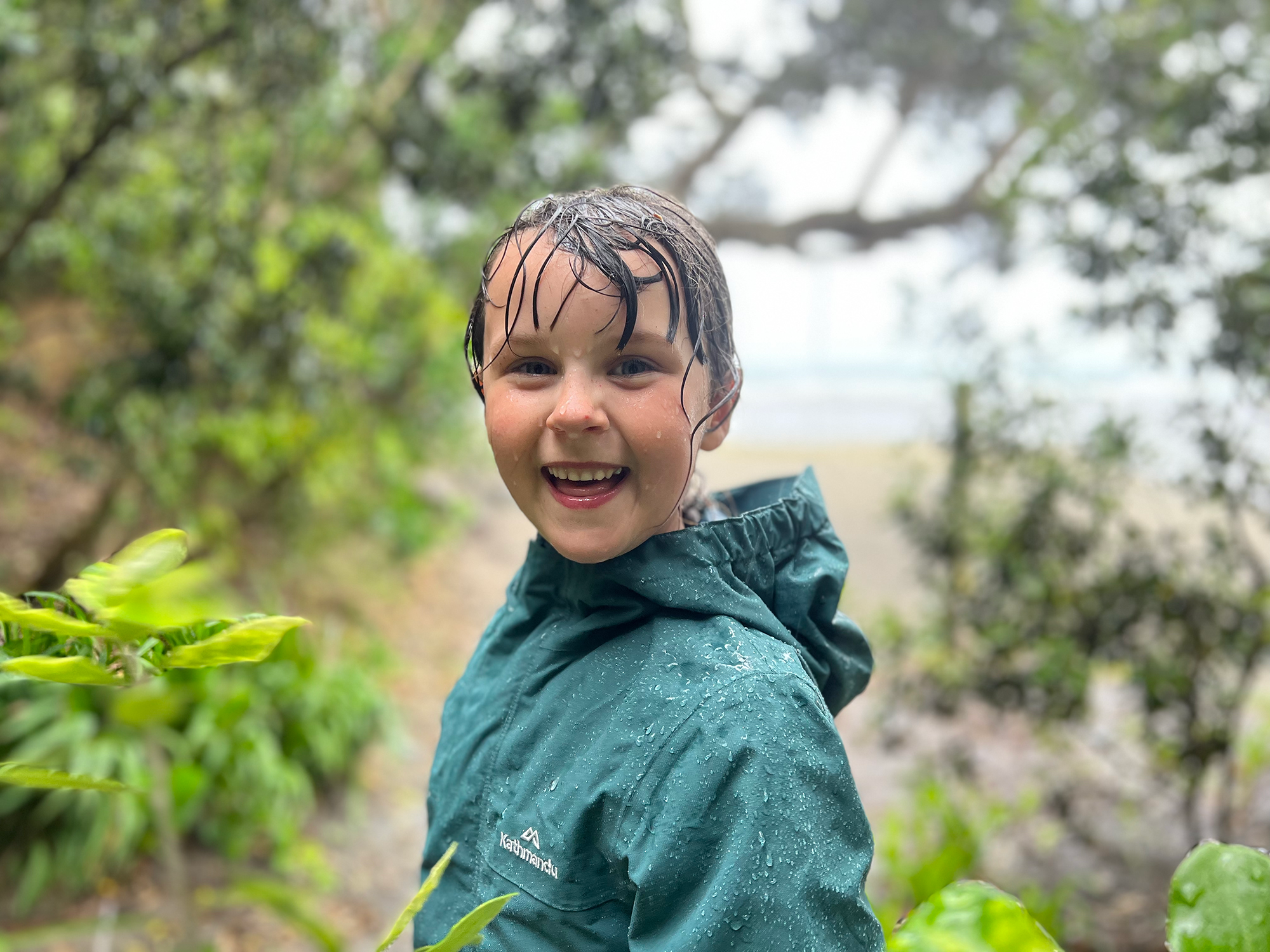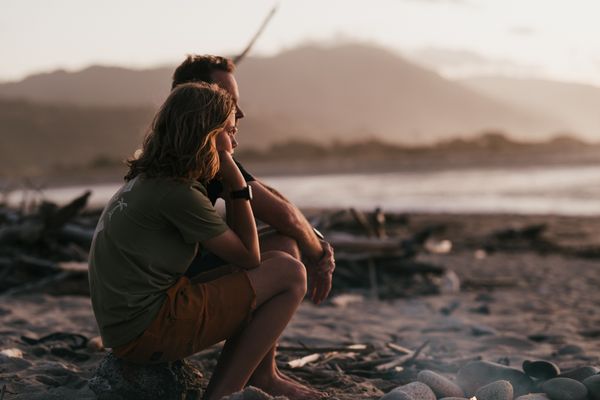Sunday, 10am, a week before Christmas. I’ve just pulled our car and caravan onto a narrow strip of gravel near the highest point of Arthur’s Pass. Arguably the most stunning of three alpine passes that traverse the Southern Alps on the South Island of New Zealand, and - at over 3,000 feet above sea level - categorically the one that makes you climb the highest.
Right now we’re at about the two and a half thousand foot mark. The car dashboard has lit up. Every possible red light is flashing. Thick steam is pouring from the engine bay.
Warning. Engine overheating. Pull over immediately.
Warning. Engine overheating. Pull over immediately.
As I squeeze as tightly into the space as possible and shut off the engine, I can’t even see the bonnet. Just billowing clouds, accompanied by the sounds and smells of boiling engine coolant.
And if you think the car sounds hot, you should see my face. The palms of my hands. Is the steam actually coming from the car, or from me? Hard to tell.
Buy a caravan, they said. Hitch it to your car, hit the road, and spend your days jumping in lakes without a care in the world, they said. Brew a coffee over a campfire in the mountains and watch the sunrise, they said.
The open road and the promise of freedom. Sounds like a dream, right? Well, having roadschooled around New Zealand for the first half of this year, I can tell you with authority that it’s equally the most amazing, but challenging, thing we’ve ever done.
Here’s everything I wish I knew before we set out on our adventure:
You’ll pack way more than you need
Most caravans have absolutely minuscule storage levels. I remember first walking into ours, seeing what felt like a thousand little cupboards and doors and storage spots, and thinking it was going to be easy. But when you start trying to shift your house life into those spaces they fill up very, very quickly. It’s inevitable that, when packing up and moving spots, you’ll have the floor and seating areas lined with gear. Which means that when you arrive at your next spot, you can’t do anything until you’ve re-shuffled things back into their storage spaces, or outside under the van, or in your awning (that you haven’t put up yet, and probably can’t for at least another day because of the pouring rain). Needless to say, try and avoid arriving anywhere at night. That thought you’ll have about pulling up, and blissfully hitting the hay straight away? Shelve it.
When you first start packing for your big trip, you’ll still be in a ‘house’ headspace. Living on the road is a very different lifestyle, and you’ll need so much less than you think.
Here’s the trick: start by packing only what you need. Then, with a critical eye, re-define what ‘need’ really means and unpack everything else.
And then…do that again. Nine more times.
(Oh, and a tip for anyone towing - don’t stack stuff wherever it’ll fit while you’re driving. Pack your caravan with the heaviest things as low as possible, starting in the middle over the axles. Then build out from there, heaviest to lightest, keeping the weight nice and even. Don’t just throw stuff anywhere. Don’t leave things like books in high cupboards when you’re traveling. And don’t pack anything heavy near the front or back. Towing an overloaded or unbalanced caravan is not something you want to mess with!)
You’ll be more connected to the weather than you realise.
Sure, you’ve already thought about this. But you won’t fully appreciate it until you’re out there. It’s not just the fact that high winds have you scrambling to take your awning down to save it from damage, it’s that you’ve also lost all that extra space for storing half your gear out of the sweeping rain or away from curious animals. And that means you’ve lost that extra space inside to spread out. In your head, you’ll think “oh, it’s cool, when that stuff happens it’s a great chance to explore little local libraries and markets and second hand shops and…”...errr, what libraries? What thrift shops? You decided to park somewhere a bit quieter this week, remember. There’s no town strip to take shelter in. It’s you and the elements, and the elements always have the final say.
When it gets hot, you’ll feel it. When it’s cold, you’ll feel it. You’ll have some protection when you’re inside, but you won’t just sit in that small space while it rains for five days. You’ll end up spending more time outside in weather you probably normally wouldn’t.
And you know what? As long as you’ve packed whatever clothing you’ll need for whatever conditions you’ll face, you’ll love it.

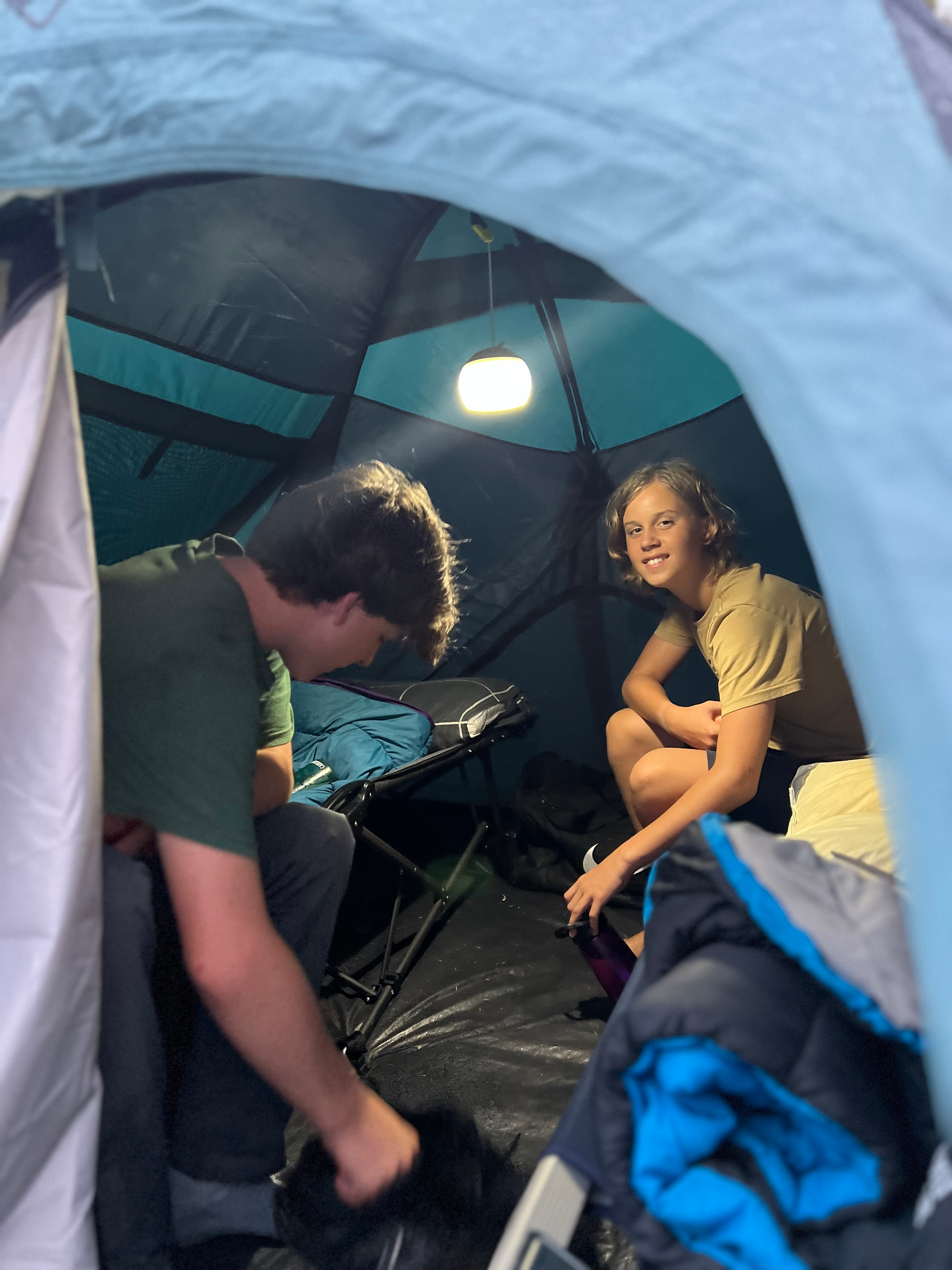
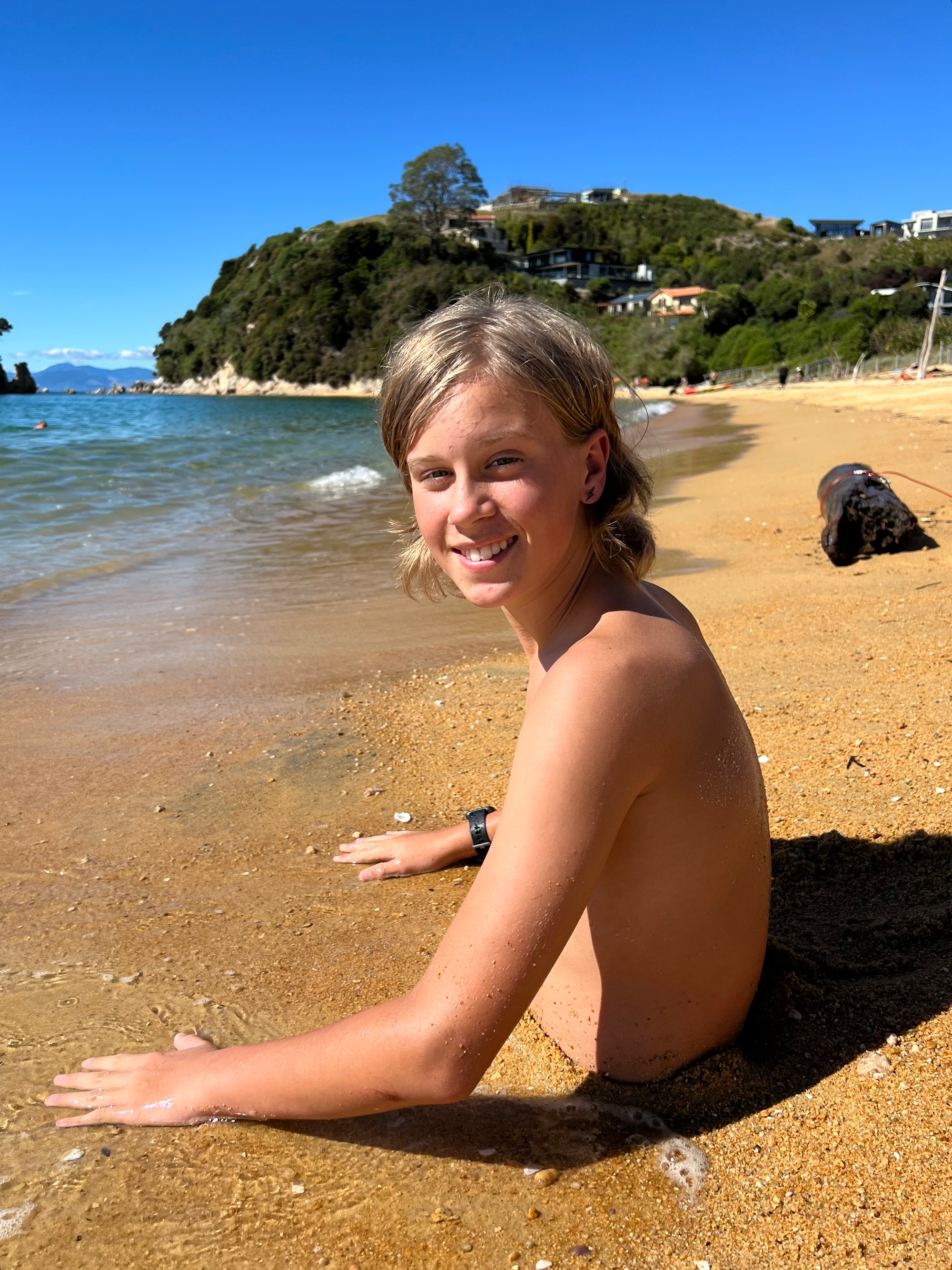


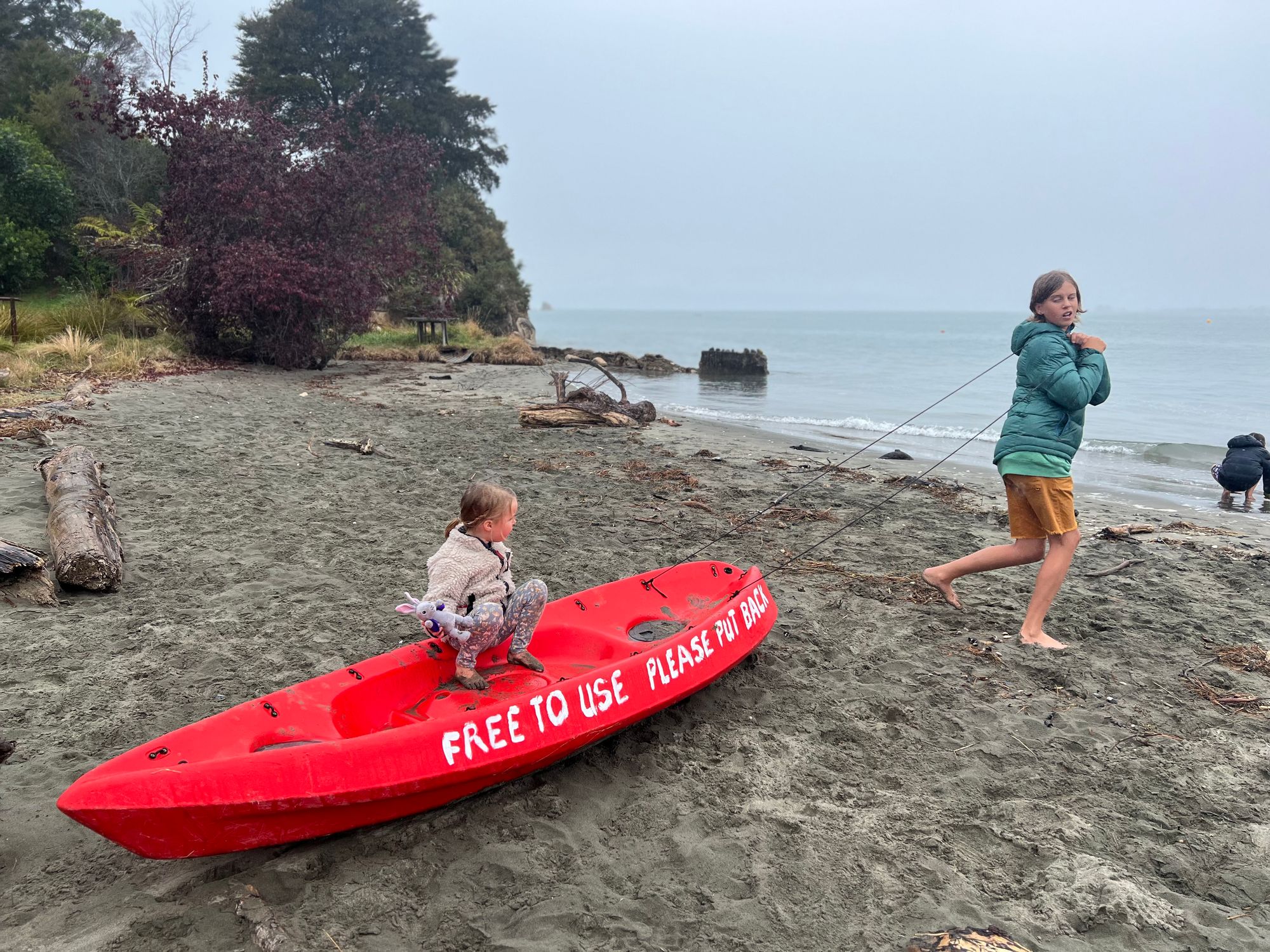
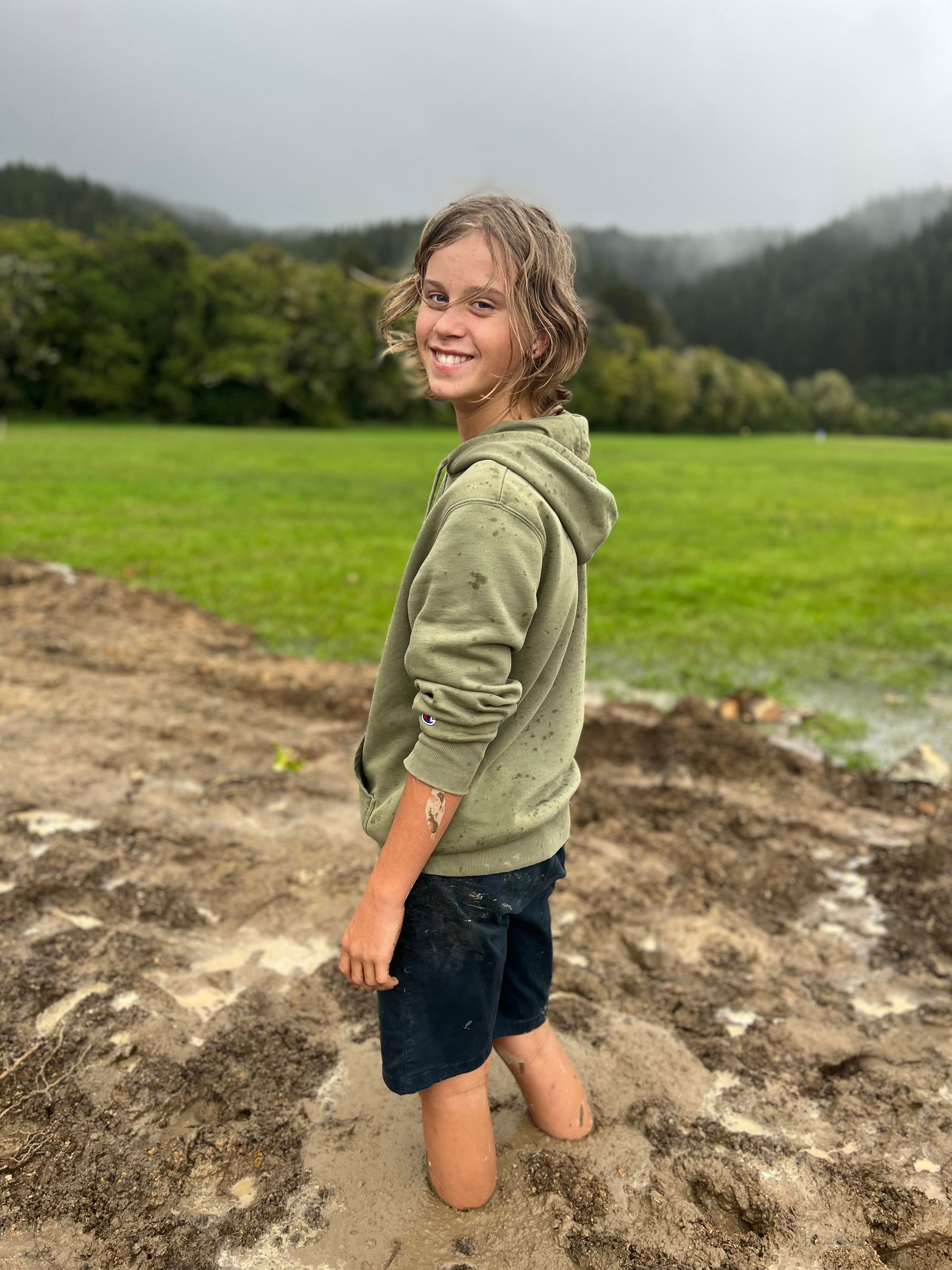
Those beautiful, remote locations you’ll imagine spending a lot of time? You probably won’t.
Sure, there’ll be times when you’ll park up in the middle of nowhere, in a spot that looks like paradise, and have it all to yourselves. But even with some solid self sufficiency (we have solar panels on our caravan to run our lights and water pump, gas for heating, cooling and running the fridge, extra solar for running a power box we can plug things like phones and laptops into, and pretty good sized water and waste tanks), you’ll still find you can’t last all that long in those spots. Eventually you’ll need to empty and fill those tanks, and restock your food.
And depending on the rules and regulations of where you live, you probably can’t stay long anyway. In New Zealand it could be one night, or three, or maybe even five, but in most of the ‘freedom camping’ type places it’s not just open and endless. The idea of packing up, moving, and setting up again every few days might sound fine, but by the time you’ve read through the rest of this post you’ll have built a picture for why you might not want to do that. By the end of our first week we started looking for longer stays. And longer stays usually means finding actual campgrounds.
You’ll probably want a hot shower soon enough, anyway. Or to actually wash your clothes. Or to find a decent sized kitchen. Or some other kids. Or be closer to shops, or a library, or…
We mapped out a stack of incredible looking off-the-beaten-path spots dotted all the way up the country. We hardly stayed at any of them.
(but when you do…oh wow, when you do…)
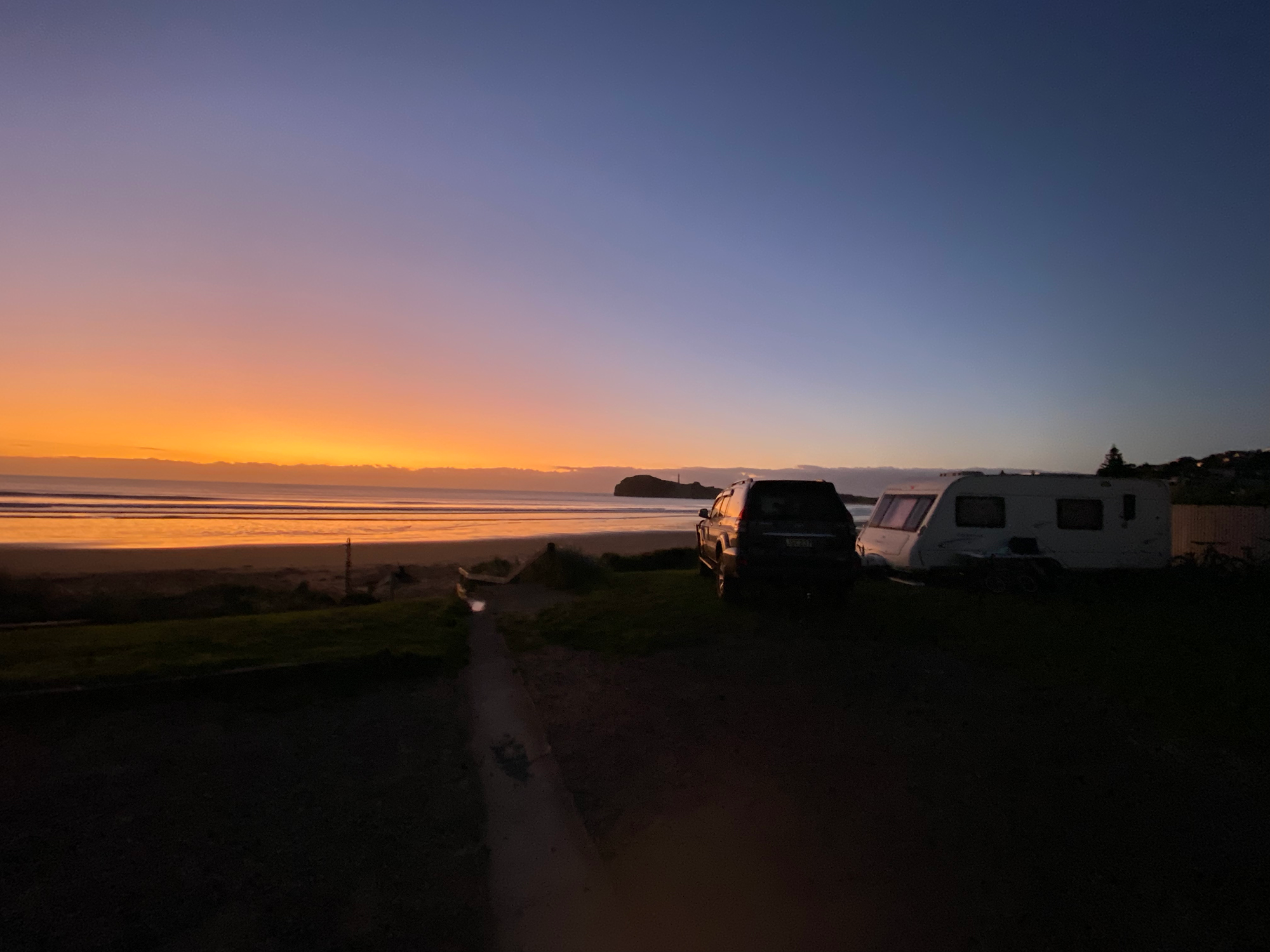
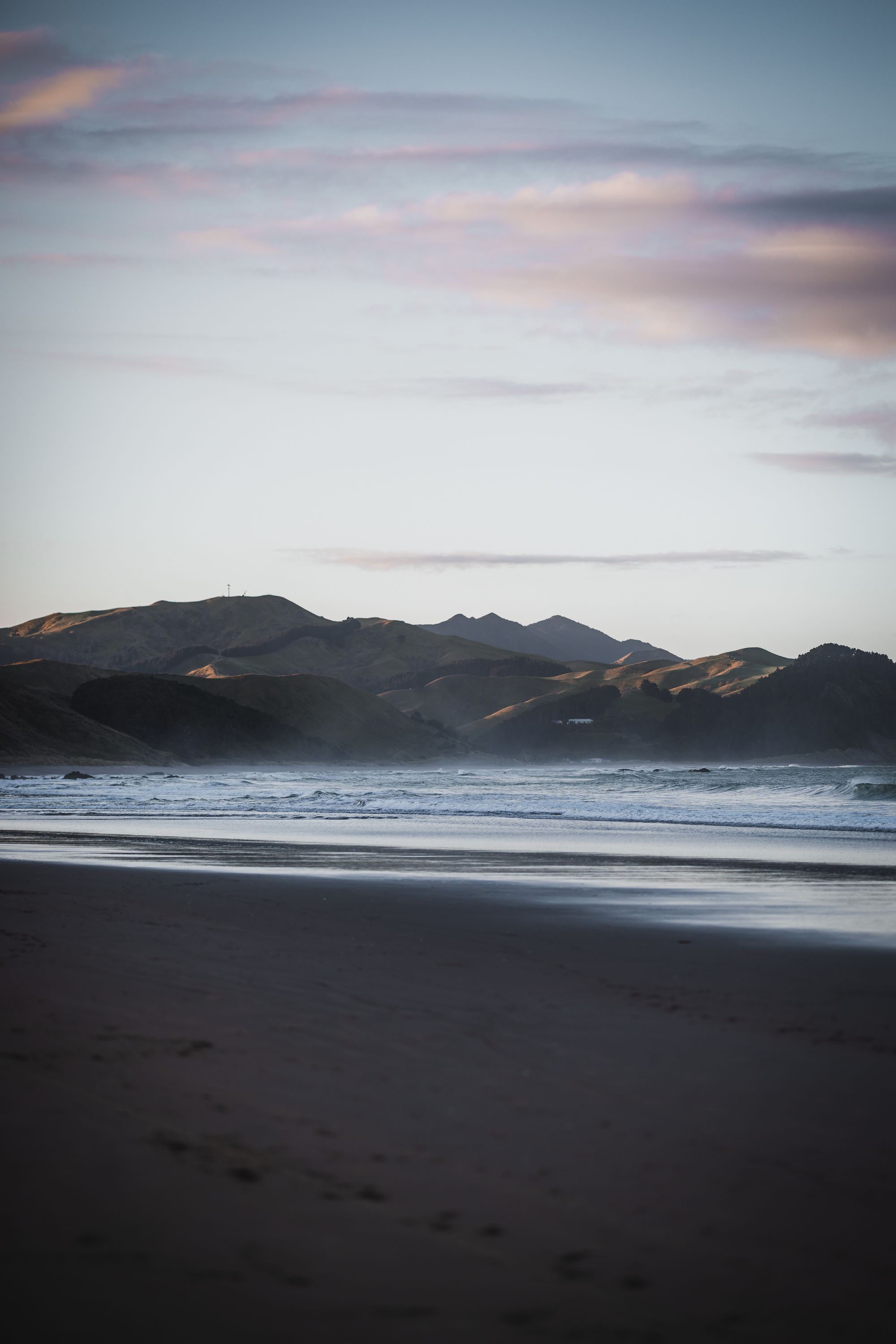
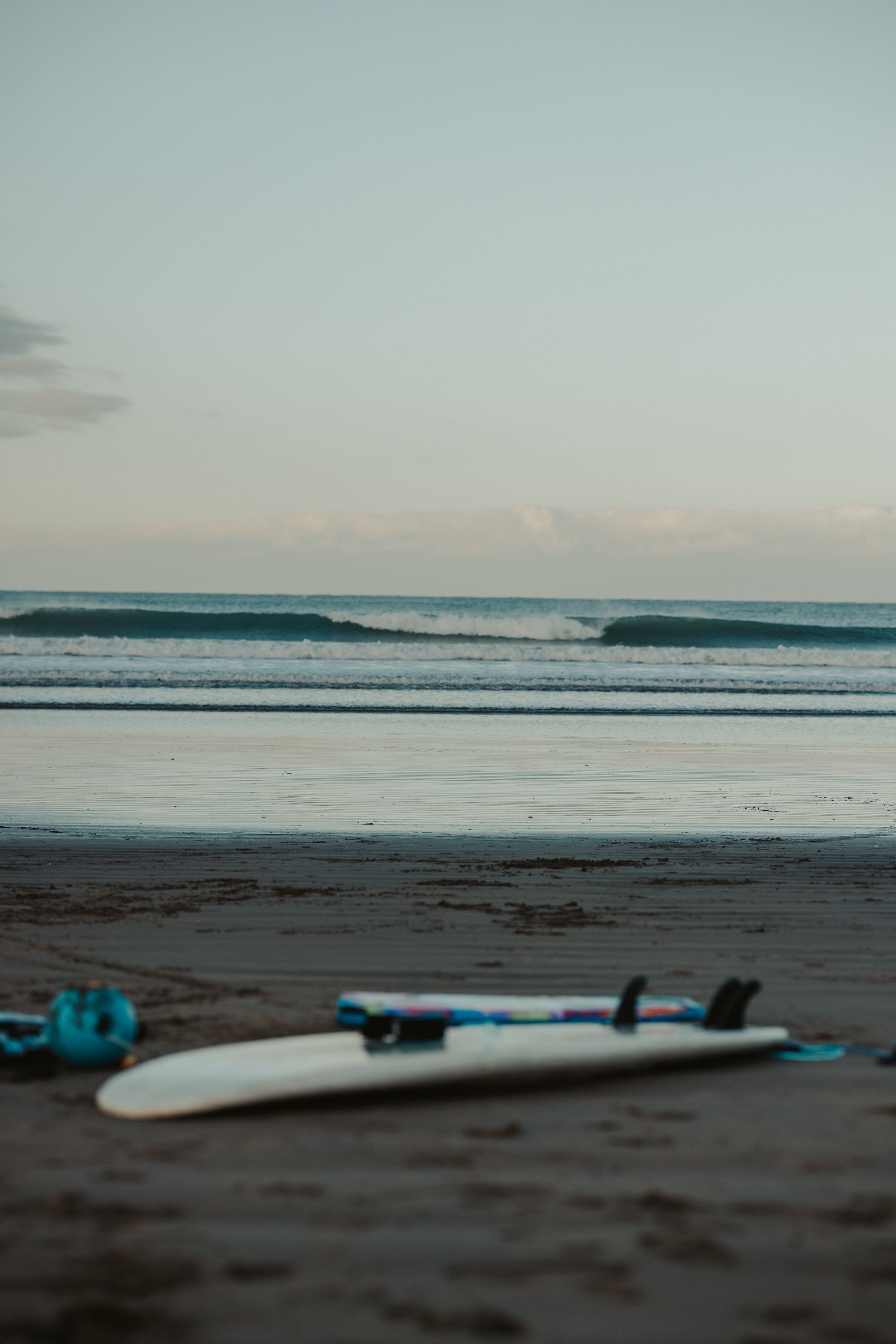
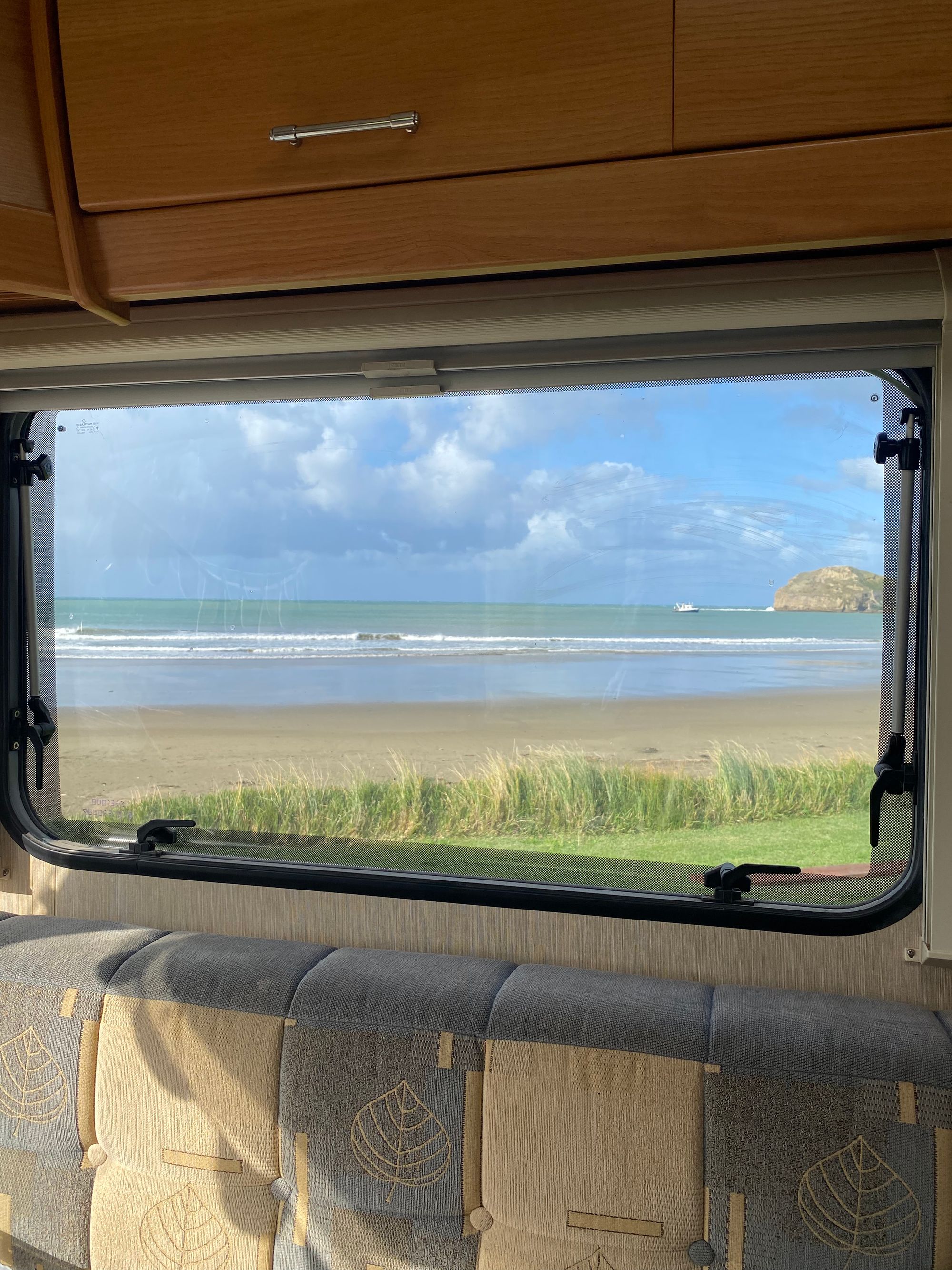
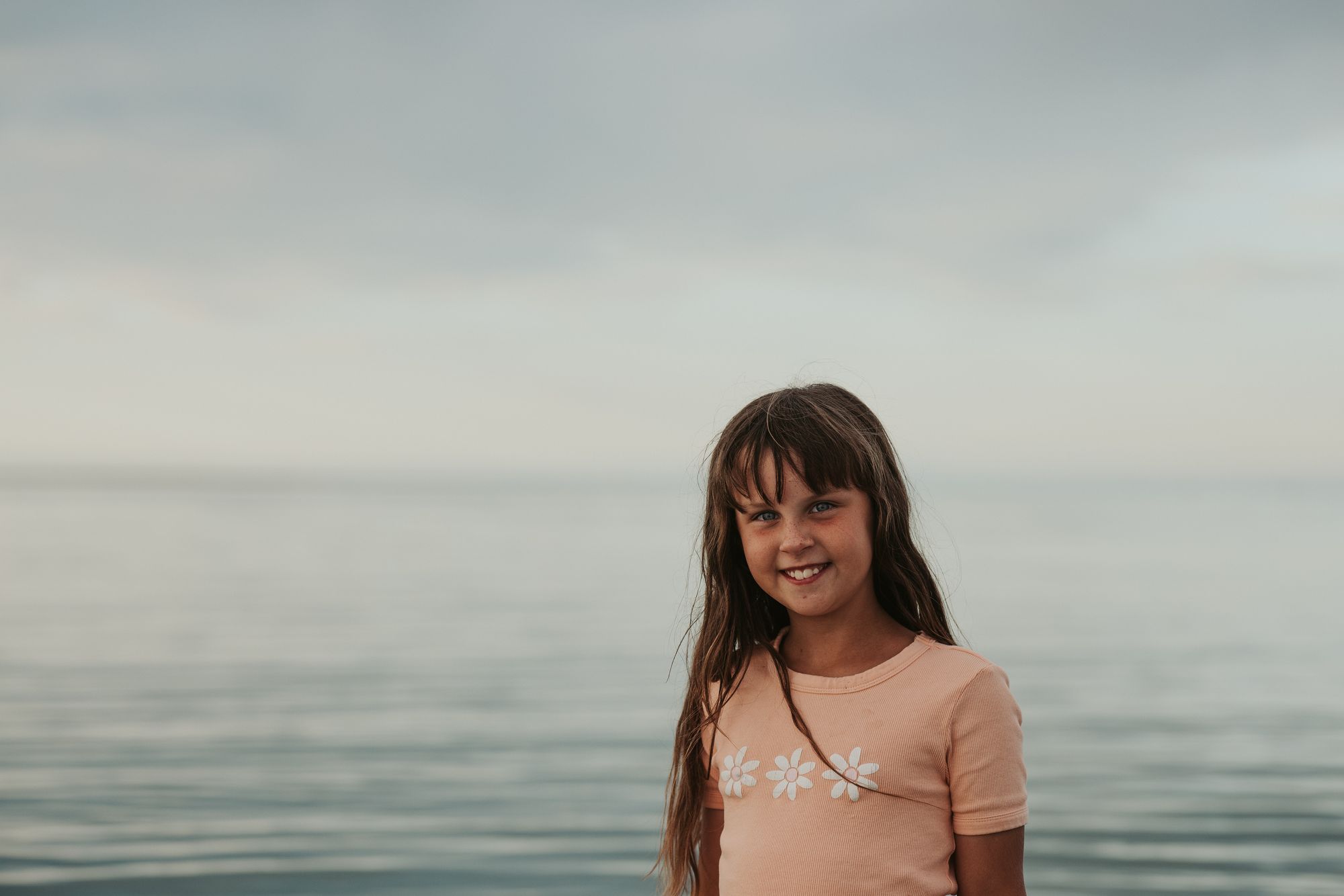
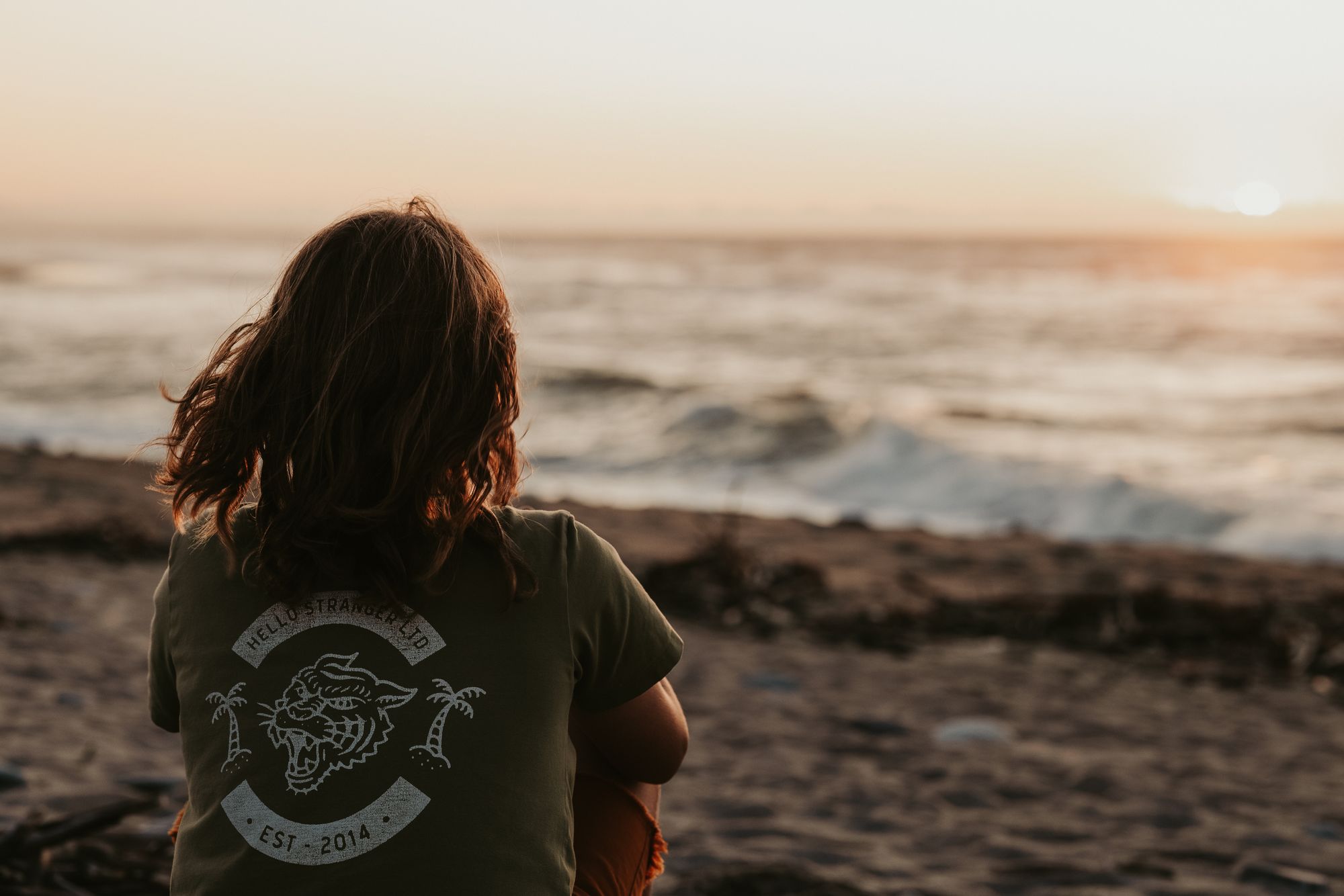
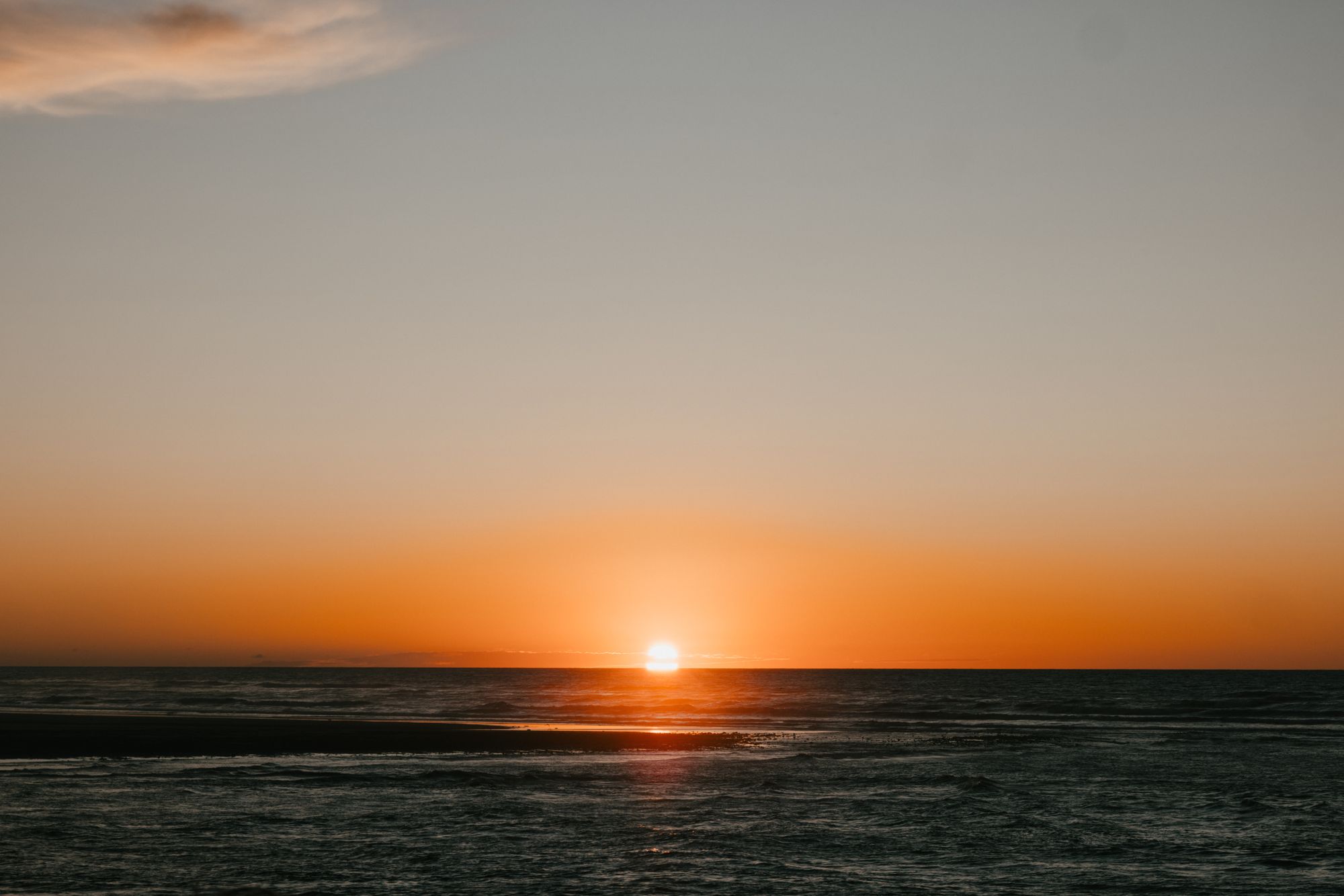
You’ll get faster at packing up, moving, and setting up, but it’ll always feel big
The first time we put our full awning up, it took the boys and I an hour and a half. By the end of the trip, we had it down to 20 minutes flat. But the whole process of packing everything up, making sure it’s all safe and secure and balanced, getting hitched up to the car and heading away, then repeating all that but in reverse when you get to your next spot, is a pretty big experience.
Not when it’s in isolation. Not when you do it just once on holiday, or on a test run (when you’ll think ‘this isn’t too bad - I actually kind of enjoy it!”). I’m talking about when it’s the sixth time you’ve done it this month. When the kids are sick and can’t help much so you’re on your own. When you’re sick. When it’s absolutely pouring down but you can’t extend your stay where you are so you just have to move on and everything is JUST SO WET. When it’s in the mud, and muck, and everything is just caked. When you’re on a time crunch because your ferry crossing has been cancelled and the only slot they can re-book you for is 6 hours earlier. Go go go!
I still really enjoyed the set-up process if the weather was lovely, and I had the time and space not to rush. But it never stopped feeling big.

You’ll learn to appreciate resources, and find joy in what used to be common
That phone you just plugged in to charge? A battery is now draining to make that happen. That milk you just poured? Go easy on it, because your tiny fridge can only hold one small container. That water coming out of your tap? It’s going to run out soon. The tank it’s flowing down your sink hole into? It’s filling up. And the toilet your teenager just walked out of? Yep, that’s now full. Oh, and it’s 10pm. And your six year old is busting.
Remember that bit where I said you probably won’t camp as remotely as you think? This is why. If it was just Kate and I, managing our tanks and supplies and resources really carefully, no problem. But it’s hard to do that with kids.
This is a good thing, of course, and an incredible learning experience. Most of us, in most of our daily lives, have it pretty easy. Turn on a tap, the water runs. Flick a light switch, the bulb glows. Open the fridge and it’ll be cold, with enough food to last more than just a couple of days. Flush a toilet, and never give another thought to what happens next. Put your rubbish bins out on the street on collection day, and all that trash just disappears.
When you’re living on the road, none of that just happens. It’s all on you. Early on, you’ll find yourself thinking about it a lot. But as you build the muscle of conserving resources wherever and however you can, it will start to become second nature. And you’ll start to find genuine satisfaction in things you used to take for granted.
After a few days of not having access to a washing machine, it’s a feeling like no other to pull in somewhere with a laundry space, pop in a coin and some powder, hit the start button, and see that soapy water pour all over your clothes. Ahhhhh, bliss.
And when was the last time you went a solid few days, maybe even a week, without a shower? The feeling of stepping under that flow of water, rinsing yourself off, is almost euphoric. You don’t even care that the water pressure in most campgrounds is a third of what you’d have at home. It’s hot water! And it’s on your body!
(just don’t muck around - most campsite showers are on pretty short timers)
The appreciation we built for the small things hasn’t left us, either. We’ve been home for a few months now, and we still don’t take infinite running water, hot showers, or the space in our fridge for granted.
You’ll love the spontaneity, but you’ll find and embrace a rhythm
Knowing you can pack up today and head wherever you want is an incredible feeling. But - for many of the aforementioned reasons - you probably won’t. Instead, you’ll find a rhythm and flow that works for you and settle into it. For us, that meant a moving schedule that matched my work. We’d pack up and move on either a Friday afternoon (if we didn’t have far to go) or Saturday morning. We’d travel to our new site, and then spend the weekend getting ourselves set up, oriented in the new place, and settled in before I needed to open my laptop and get back to work first thing Monday morning.
That rhythm was important for the kids, too. We’re unschoolers, so extensive desk work has never been a big part of our lives, but having a rhythm to our days has always been important. It’s our version of ‘structure’. We tried having completely open days for a bit, but it never really works for us - either at home or on the road. After a couple of weeks, we’d all found our own little flows. The days usually started with something physical (walks, playgrounds, bike rides, swims - whatever was around us), then wound down into a quieter phase (food, board games, coding on Scratch, jumping into a class on Outschool, doing some art, lazing in the sun), then charged back up again when I finished work mid-afternoon (back onto the bikes, or out for a surf, or playing some cricket, or heading off to explore whatever town or area we were staying in).
Those quieter times were really important for our rhythm. Those slots (especially times where the kids could get into something like an Outschool class, and have another adult lean into their life in an inspiring, motivating way), gave Kate and I a window where there was less wrangling needed. Without that grounding time, the days felt too open-ended.
The spontaneity is there when you want it. But you’ll appreciate it more if you find a flow to build from first.
(P.S. I recently put together a massive list of free and low-cost resources for the team over at Outschool, who I’ve been a big fan of for a long time. It’s totally free, and you can grab it here.)
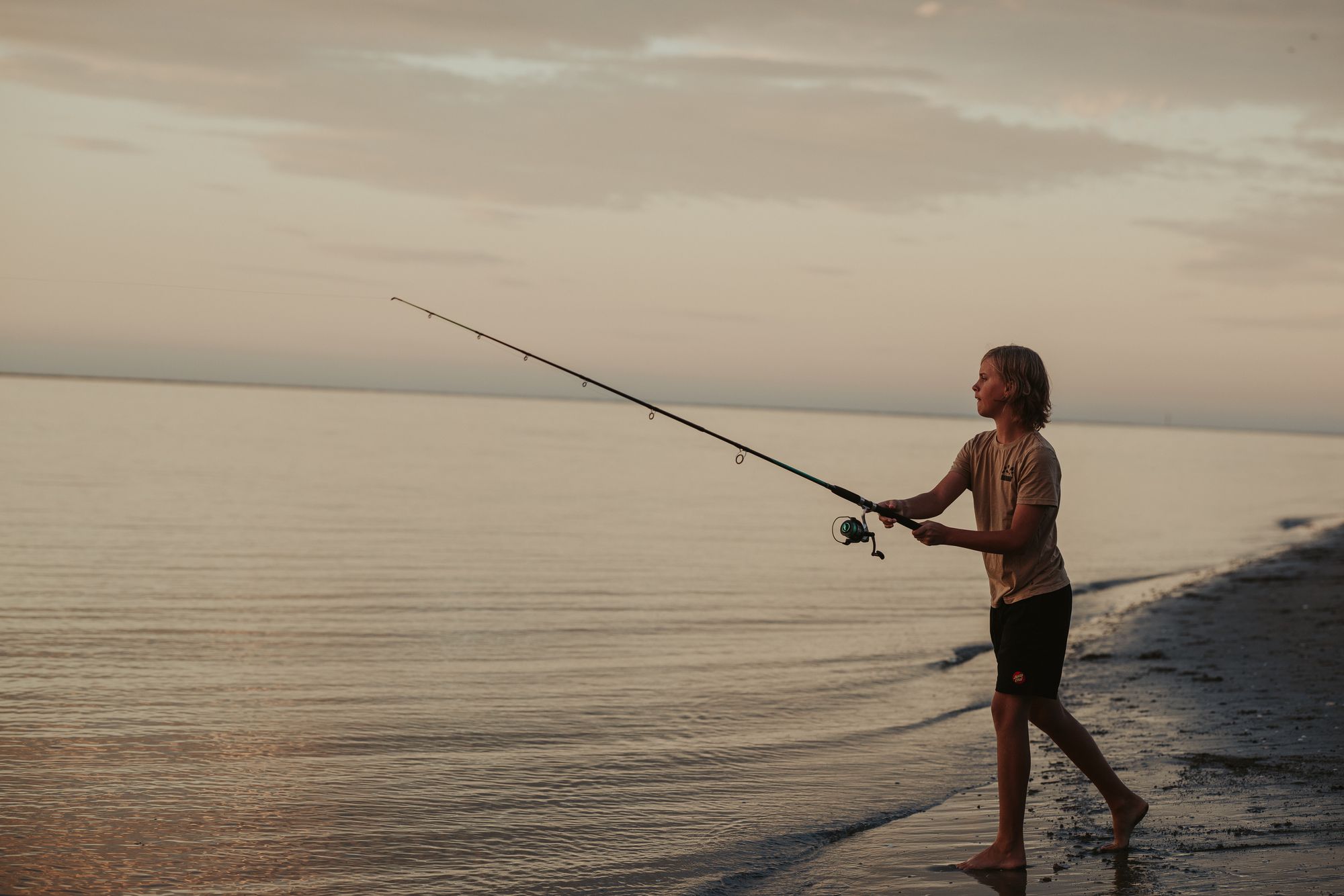

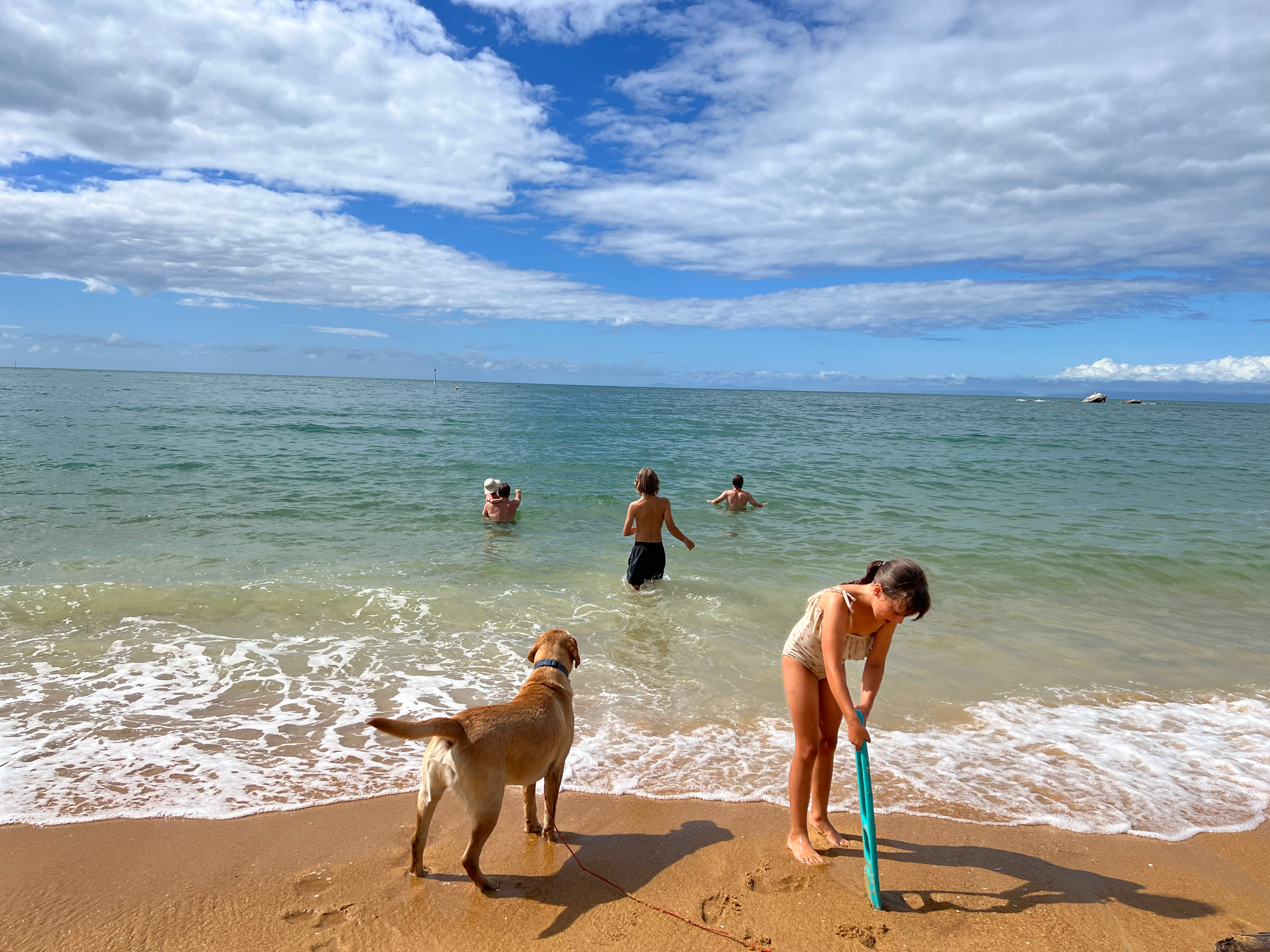
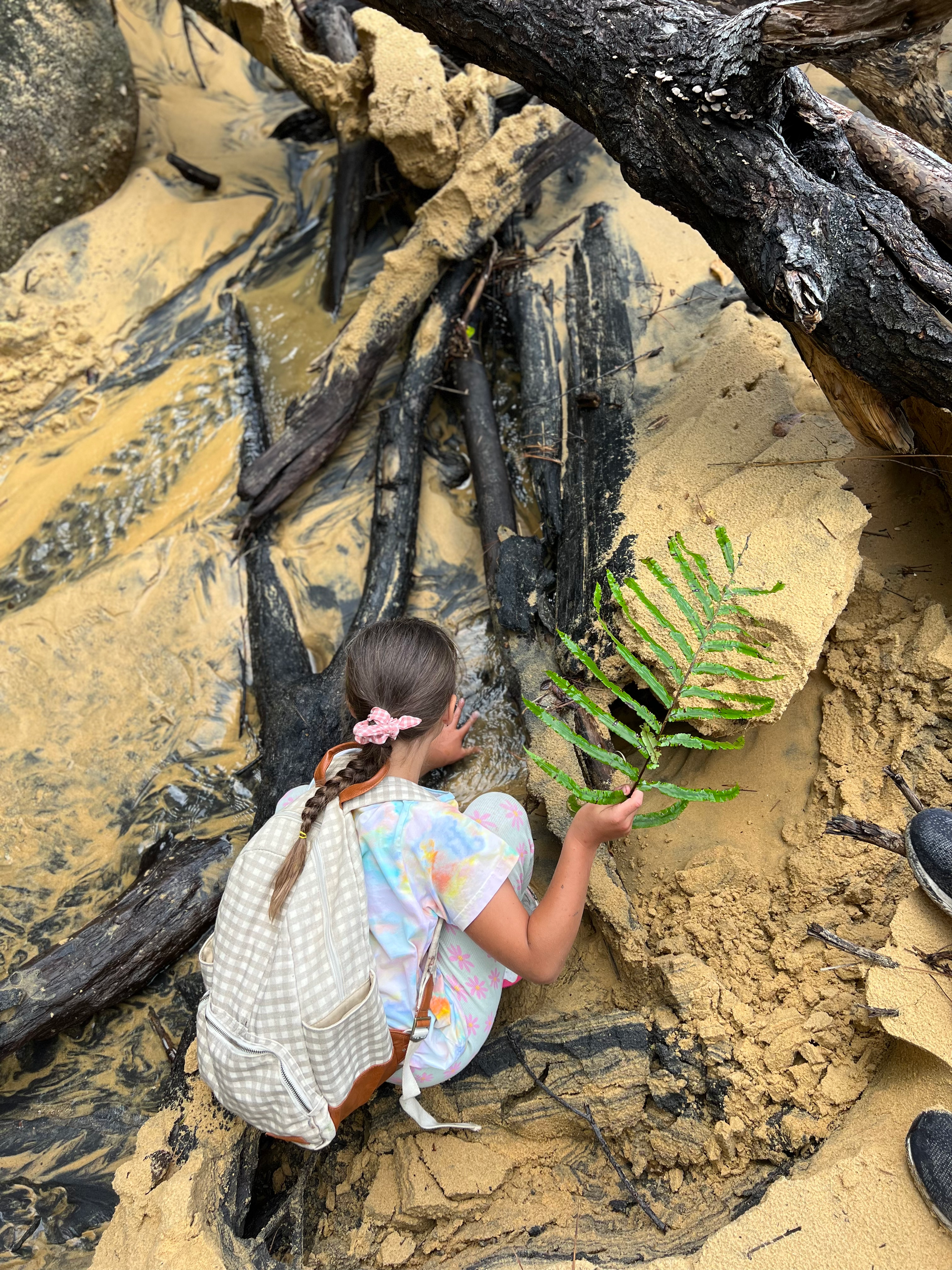



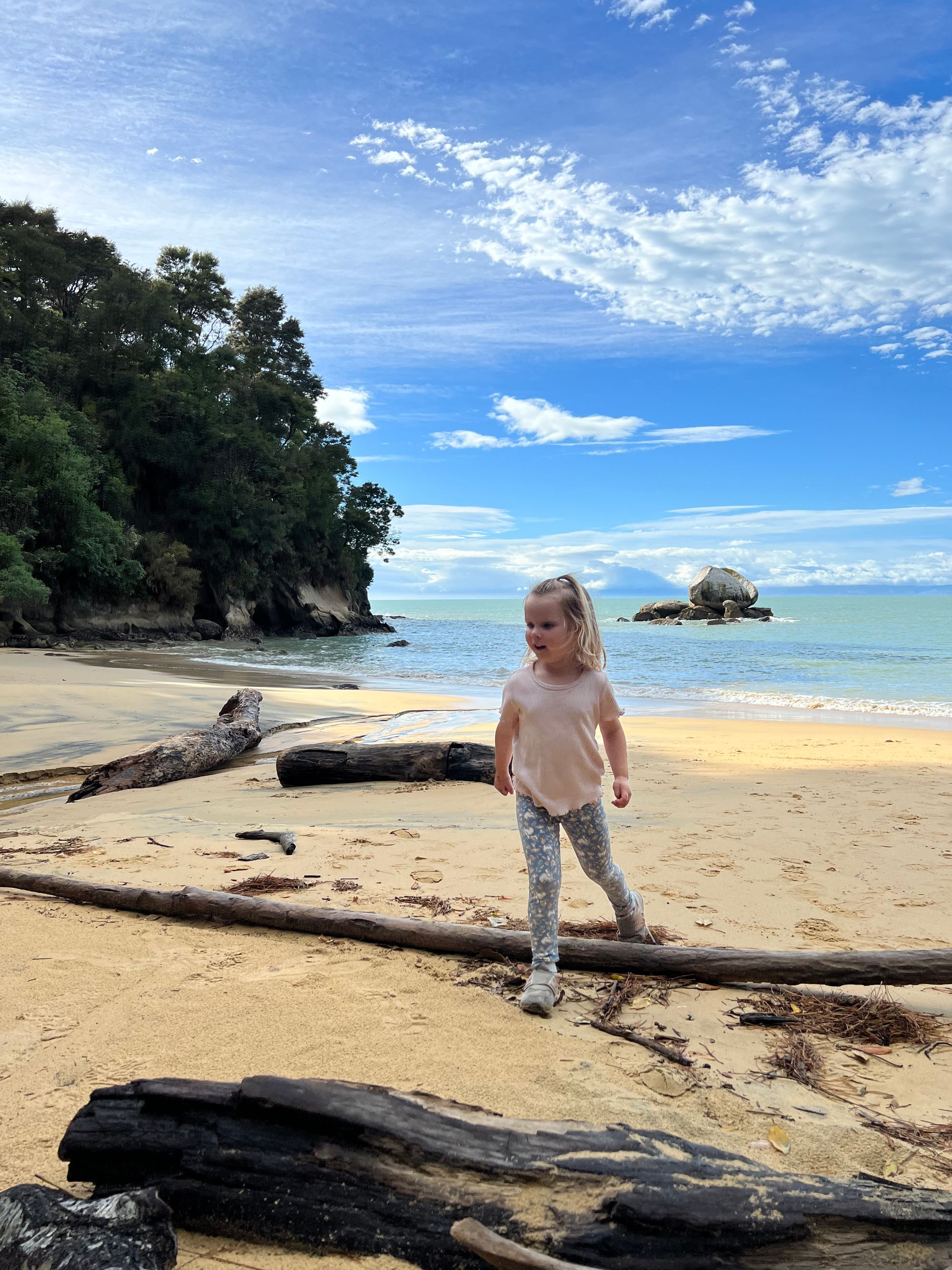
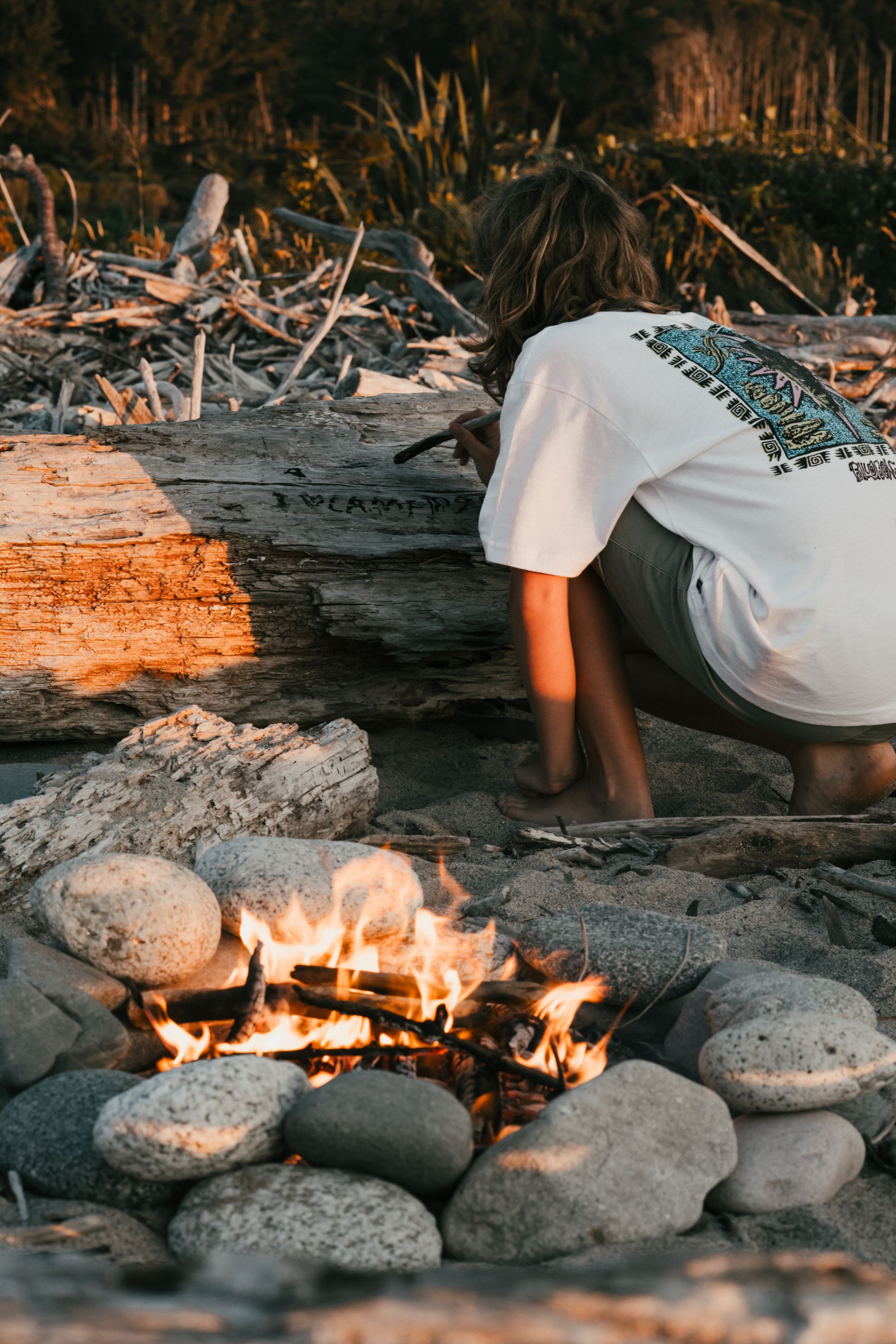
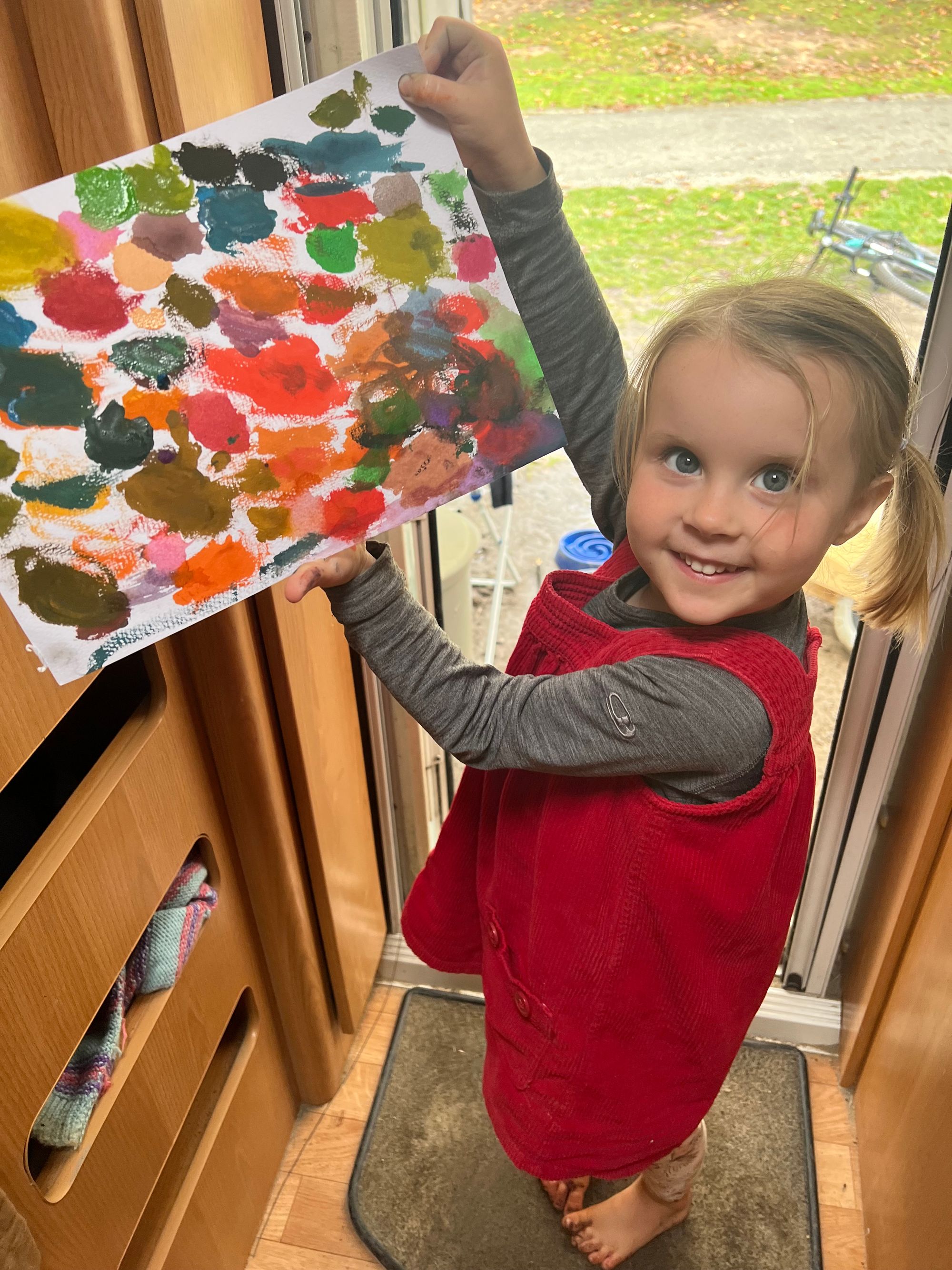
You’ll think you won’t need to spend as much time cleaning and doing ‘house work’, but you will
Ok, maybe not as much as you do in a house. But when your life is on the road all that wonderful outside living you’re doing comes straight inside. Sand, grass, dust, mud…it’s surprising how dirty a caravan gets in one day. And everything’s just a bit more difficult and time consuming.
Want to sort that laundry pile? Find a laundromat, or walk it across the campground to wherever their washing machines are. Need to do those dishes? Unless your setup is really, really fancy, that’s going to be by hand. And if you don’t want to use your precious water and fill your gray water tank faster (you don’t), you’ll be trundling off to the camp kitchen with a tub full of dirty dishes, some detergent, a scrubbing brush, and a timer set for when you need to run back to the laundry for your load of washing. And you can’t not immediately put that washing away when you get back, or it’ll end up on the ground. In the dust.
(trust me)
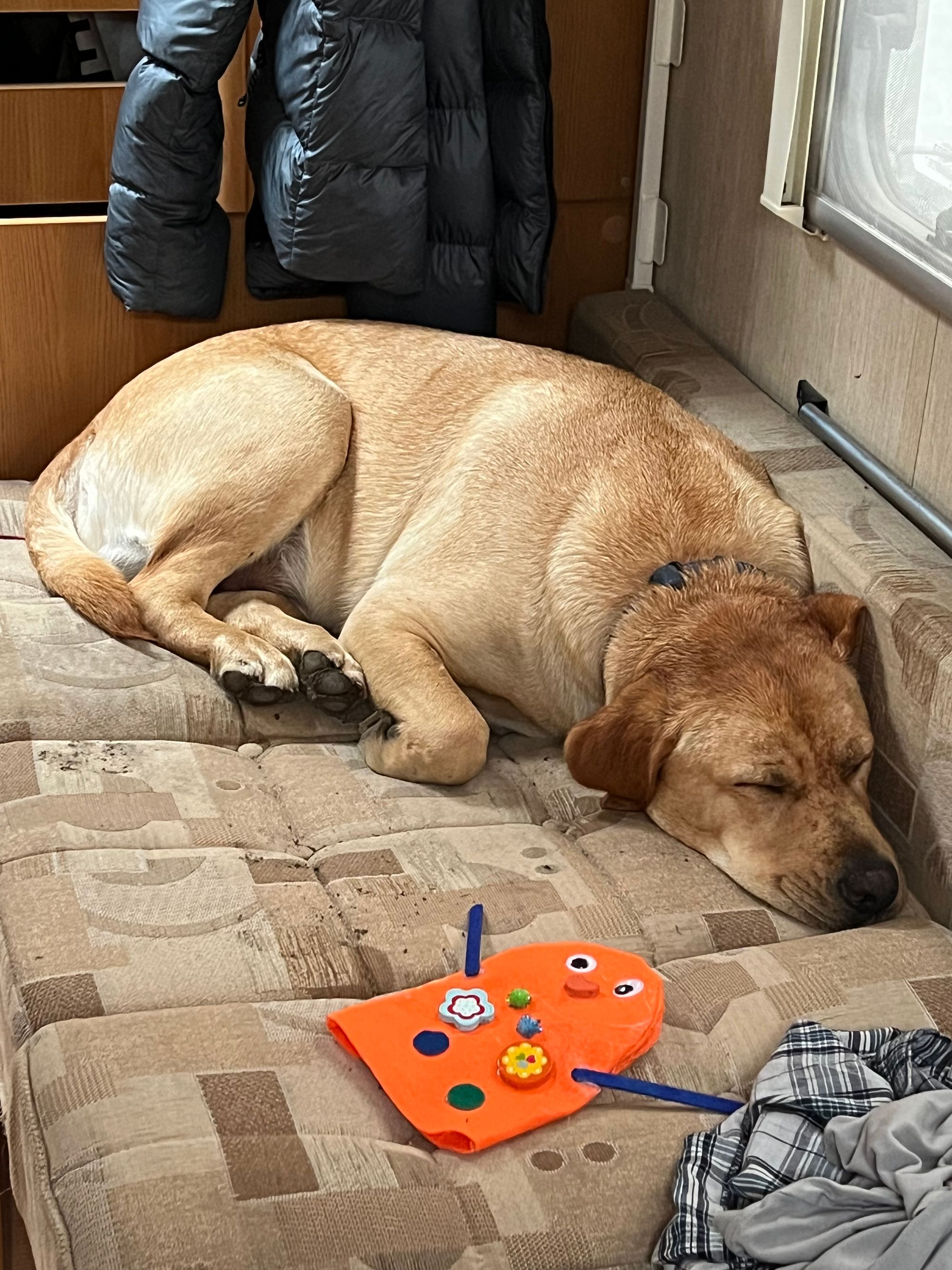
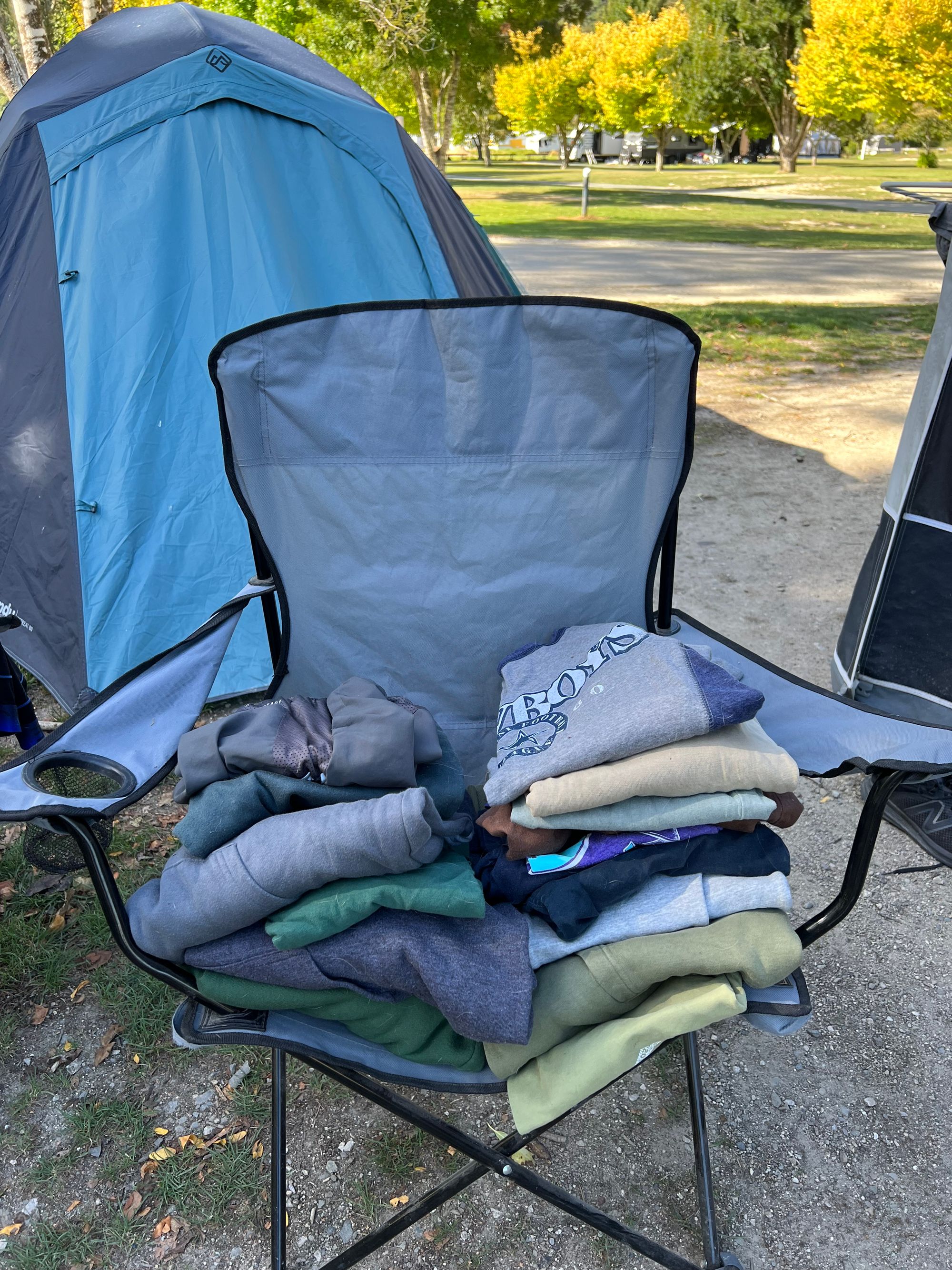
Wet dog and soaking jackets. Uh oh. Freshly washed clothes expertly folded by our boys, but not put away yet. Uh oh.
Remote work is a harder challenge to nail than you think
Taking your work with you on the road is the way a lot of families make this lifestyle happen. Which, in theory, sounds amazing. You know it - that quintessential image of a laptop propped up with the ocean behind it, a cold drink to the right, and sandy toes poking out the front. But I can promise you this is not the reality of remote working.
What it actually looks like is continually planning your stays to make sure your internet access is going to be stable enough for what you need (yes, there are inexpensive internet options that you can take with you on the road, sitting right in your van - no, they will not work perfectly everywhere). It looks like trying to focus in an awning space that’s just hit a thousand degrees on a small, slightly wobbly table with kids running back and forward. It looks like finding camping spots that have communal lounge or dining spaces where you can park up. It looks like sharing those spaces with people who are often in holiday mode, and not at all interested in staying quiet while you do your deep focus work. It looks like kicking your family out of the van, in the rain, because you have an important meeting you need quiet for and the communal space is full.
It looks like continual effort to make sure you have the space, connection and environment to do your job well - and that is almost never sitting on a picnic chair overlooking the water.
Remote working on the road is absolutely possible. But plan for the real version, not the Instagram one.
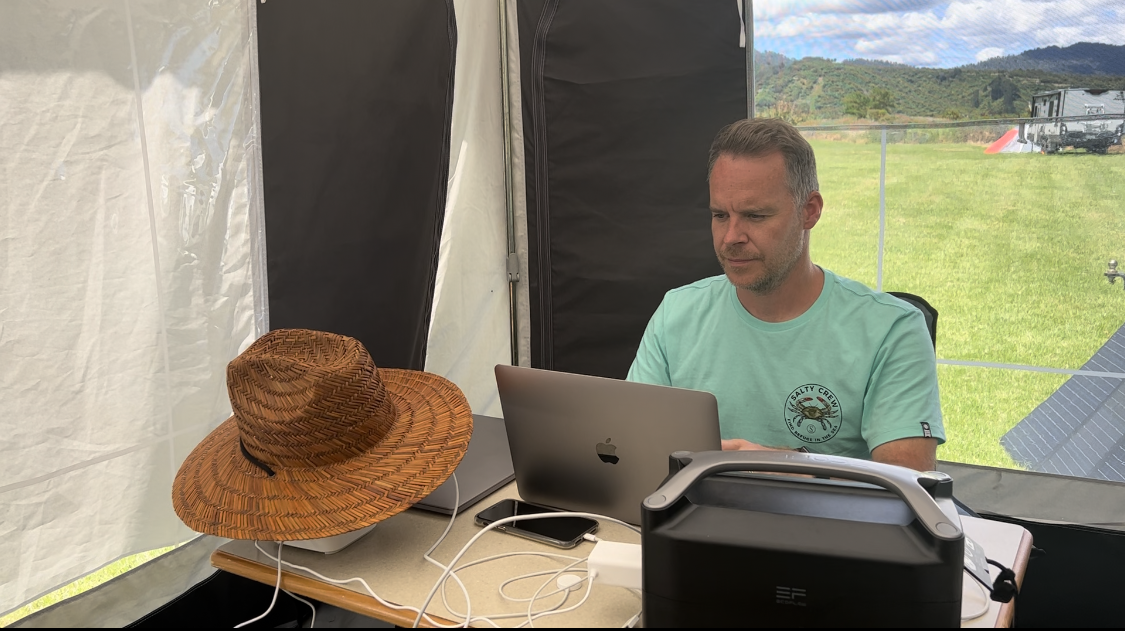
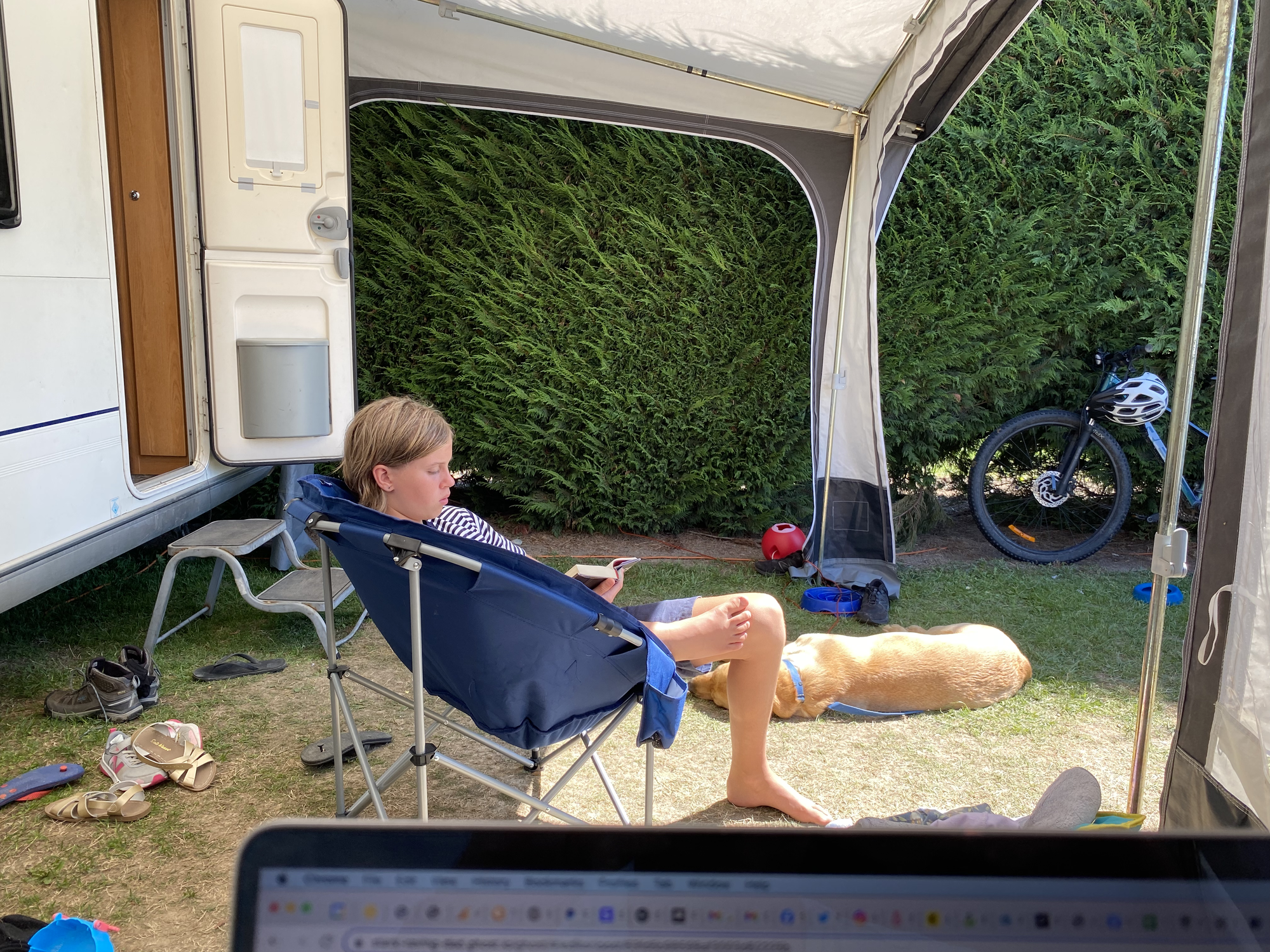
Family bonding will go deeper than you expect
It’s not always easy living out of a small space together. Everything is exaggerated. The small annoyances from home life become bigger, more in-your-face, less easy to ignore or escape. But that also means you’re more driven to solve them. To find ways to navigate them together.
When your teenager leaves their wet towel or dirty clothes lying around, that’s going to have a way bigger impact on your day to day living than it would in a house. When your two younger kids pick away at each other until it turns into a shouting match, it’s going to be way harder to separate them with space. When you’re in a Zoom meeting for work, and your 13 year old has decided now’s a good time to put some water on to boil and then just disappear, it’s going to be really fun when the stovetop kettle starts screaming. When it’s bedtime for your 3 year old, but your older kids are still up banging around turning lights on and off for two more hours…
Everything is more compressed. Everything is more connected. And if you understand that before you set off, you can prepare for it and make sure it’s a positive thing. Every one of these scenarios - and a thousand others just like it - is an opportunity to connect and grow as a family. To communicate as openly and effectively as possible. To learn to respect each other’s needs. To understand each other’s quirks. To find compromises and common ground. And, ultimately, to grow together.
Our life-on-the-road experience gave us the opportunity to learn more about each other, and to connect more deeply because of that, than I ever imagined.
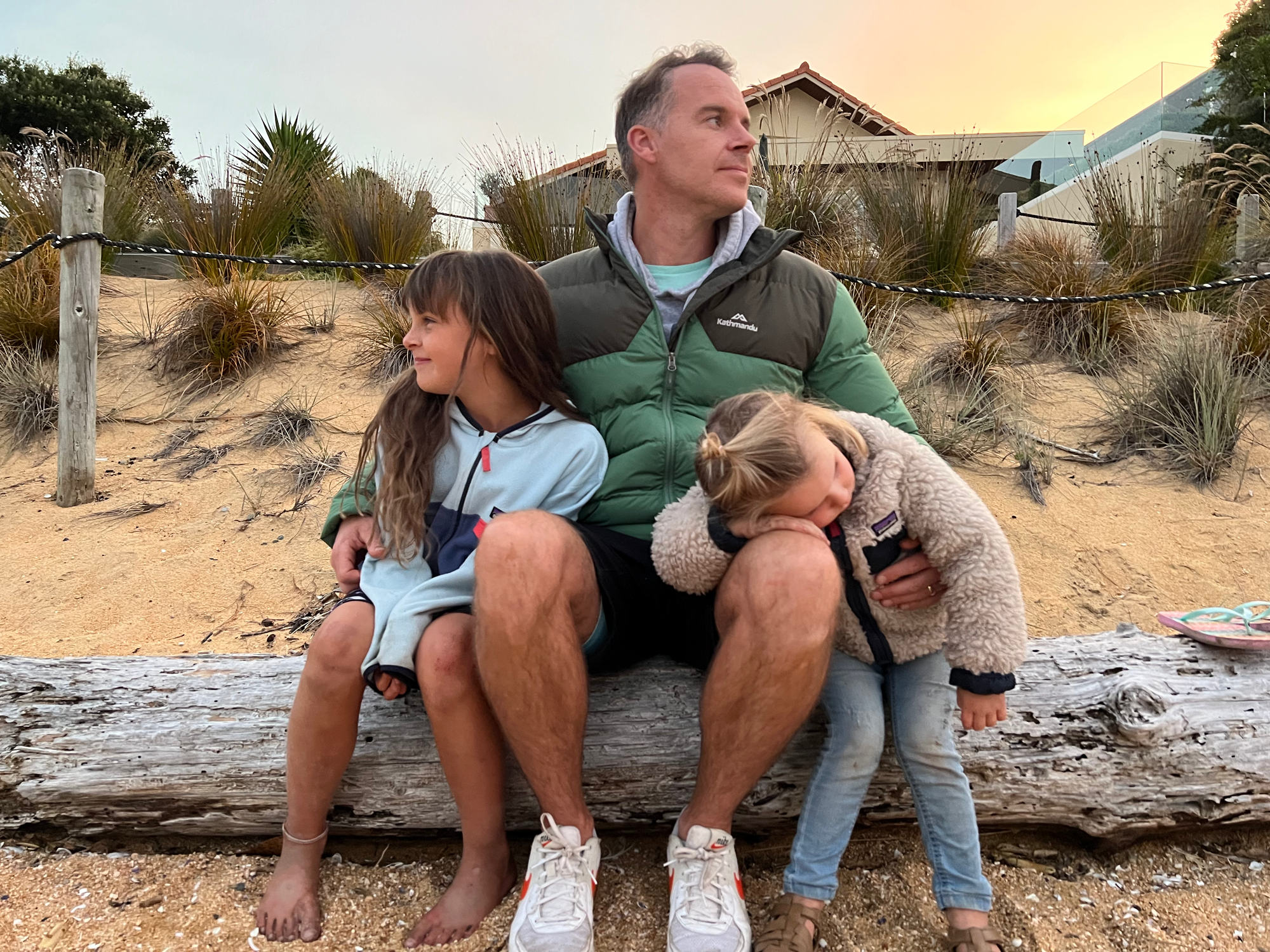

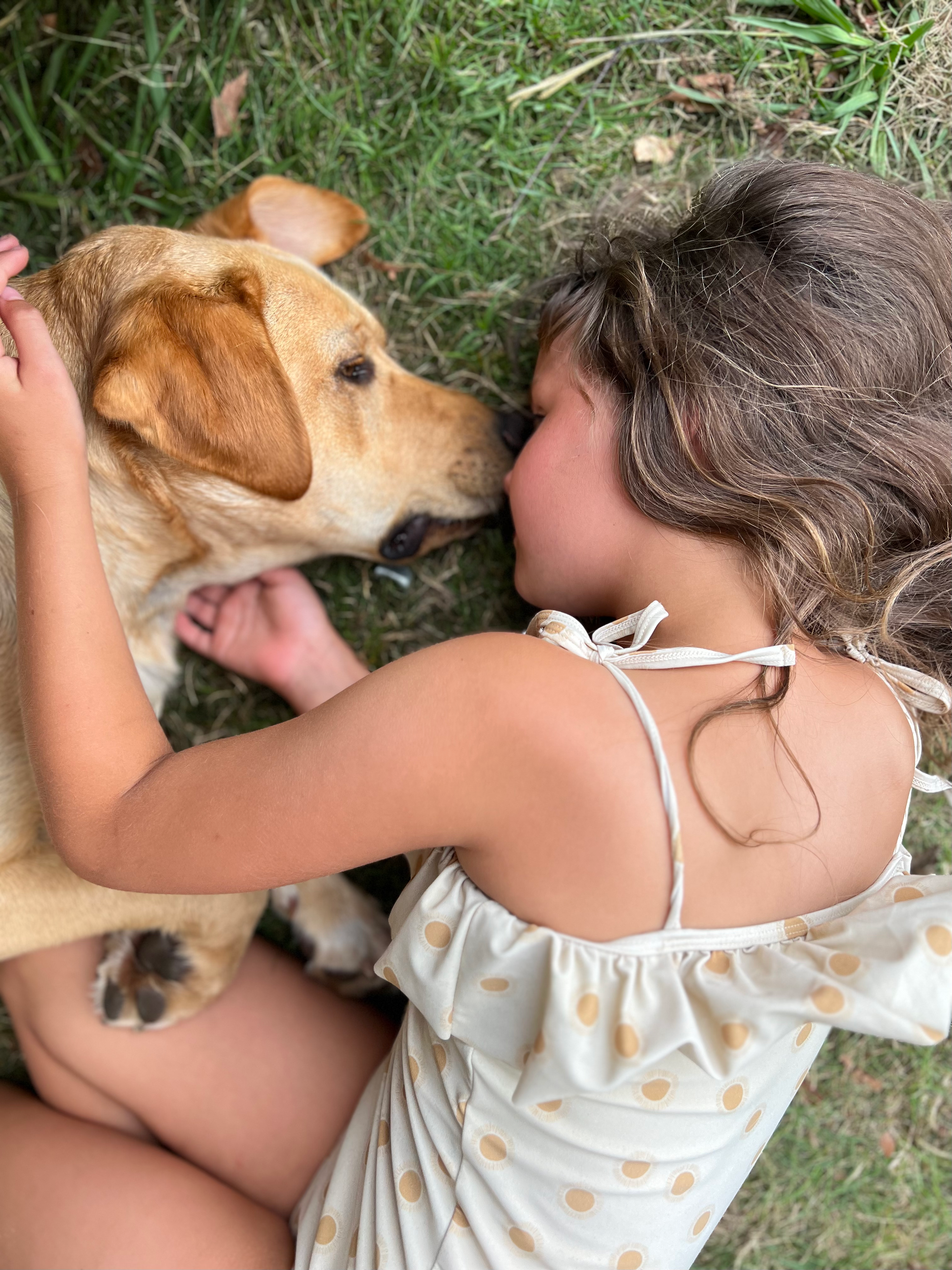
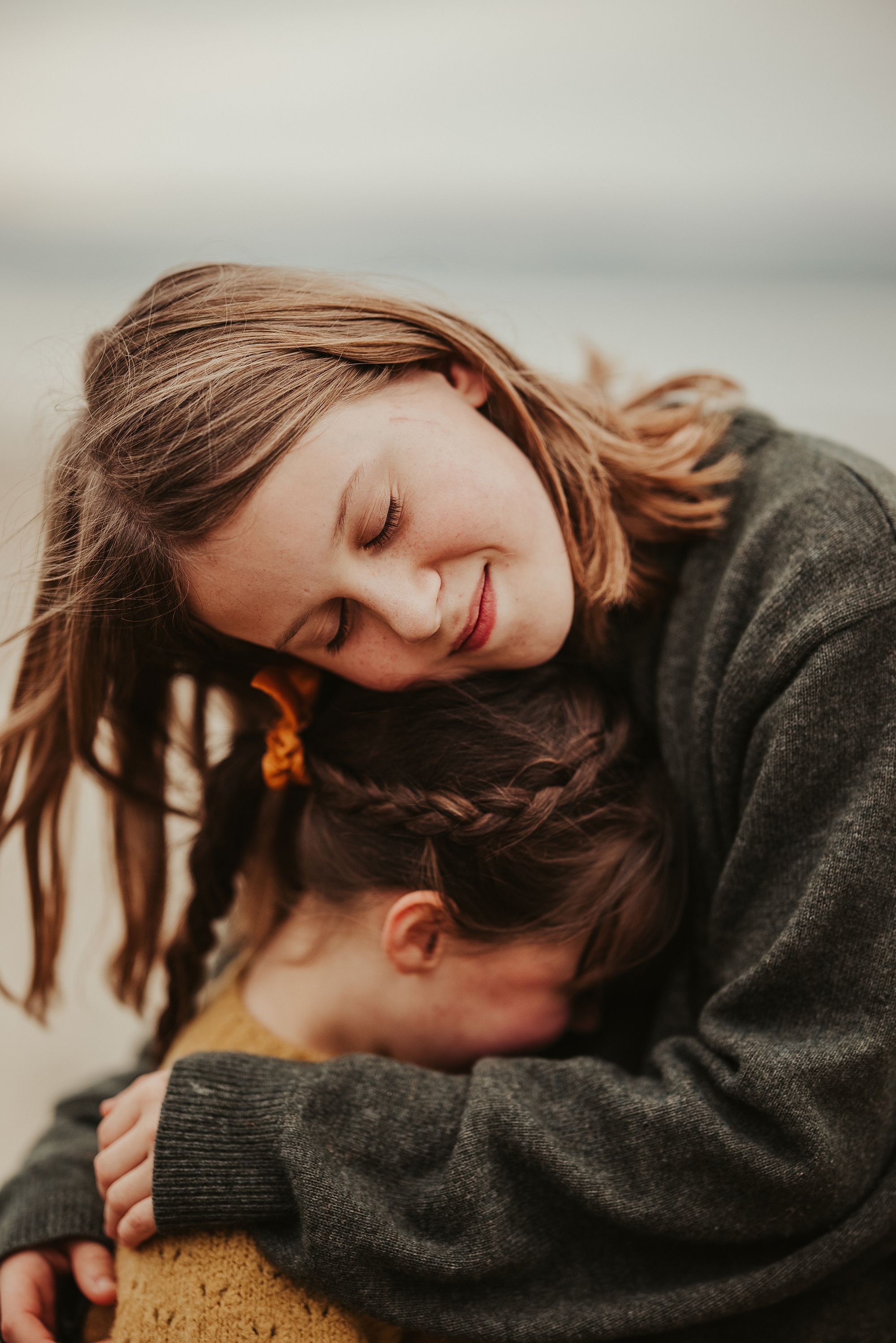

Your list of wants and needs from a camping spot will change
To start with, our requirements list would have been something like “right on the ocean, must have epic sunsets, some biking and walking tracks nearby, oh and a water tap”. But that quickly became something more like “Must have a laundry. And a kitchen. And power. And a co-working space. And a playground. And be within a few minutes of a supermarket. If we can see a tree, that’s a bonus.”
I’m exaggerating, but you get the idea. The whimsical view is very quickly replaced by a more practical one, because it just has to be. Sometimes, in some campsites, that disconnect between what you imagined and what you experienced might feel a bit disappointing. But often - far more often than I expected - you’ll actually find it awesome. There are some amazing campsites out there, run by people who are super passionate and knowledgeable about this lifestyle. You, your family and your things will feel safe and secure, you won’t feel quite so stressed about your resources continually being low, and you’ll meet other people going through a similar life experience.
Speaking of which…
You’ll meet a lot of people. A LOT of people.
The idea of being surrounded by others all the time, in fairly close proximity, was not the ideal thought for this introvert. I pictured myself in those beautiful, remote locations. Just us, soaking it all in. But for reasons well covered, that wasn’t our week to week reality. And you know what? I actually enjoyed the community vibe we found in many of the campsites we stayed at. I enjoyed bumping into people in the camp kitchen making coffee and breakfast in the morning, or sharing a communal BBQ space at dinner, or shaving at a mirror in the shower block. I never expected to feel that way.
I tried to learn from my children as much as I could, because they just connect. Within minutes of arriving at any campsite, they’d scouted out other kids staying near us and formed a crew. Usually, a crew that would be inseparable until one of us moved on. We took a polaroid camera with us, snapped a group shot of the kids and their new friends before departing from each spot, and stuck them up in a line along the top of our caravan. There are dozens of those photos now.
Some of the people we met - both kids and adults - are now good friends.

You’ll learn to solve problems you didn’t think you could
I’m not a particularly handy person. If something ever breaks or goes wrong in our house, it’s a miracle if I can fix it. So when - in our first week of travelling - our eldest stretched his legs out happily in his bunk at 2am straight through the external storage door, snapping off the two locks that hold it in place while you drive - I had to learn some stuff. And with torrential rain and heavy winds all around us, I had to do that quickly.
Another time, we arrived back after a swim to a pool of water trickling out the door. Plumbing behind the sink had come loose, and the completely full sink - that was soaking our dirty dishes - had drained into the caravan.
Yet another time, water started flowing back up through the floor of the shower, which also houses the toilet. It was three inches deep before someone opened the door and discovered it.
If you’re already a very practical, handy person, get ready to use those skills almost every day. And if you’re not, get ready to be thrown in the deep end. Don’t worry, you’ll learn - you won’t have a choice.
(oh, and as my uncle wisely told me before we set off - “Take duct tape. A whollllle lot of duct tape.”)
You won’t realise how resilient you’ve grown until you’re home
There is nothing quite like the contrast of spending an extended period of time acutely connected to the weather, your life resources, the decisions of other people around you (and each other), and then arriving back to life in a house. You don’t just carry on like before. You can’t. You’ve grown and changed forever. It’s like you're a new person, seeing life through completely fresh eyes.
Things you used to find annoying don’t even hit your radar. Things you used to find hard, you now tackle with confidence. And when life throws things at you that feel challenging, you stand more square on to them. Shoulders back, chin up, eyes determined. I have felt this in myself, time and again, since coming home. And I’ve witnessed it in my children, over and over.
You’ll be aware of the resiliency growing inside you as you travel. But you won’t discover how far that’s gone, and how permanent it will be, until you close that life chapter and open your next one.
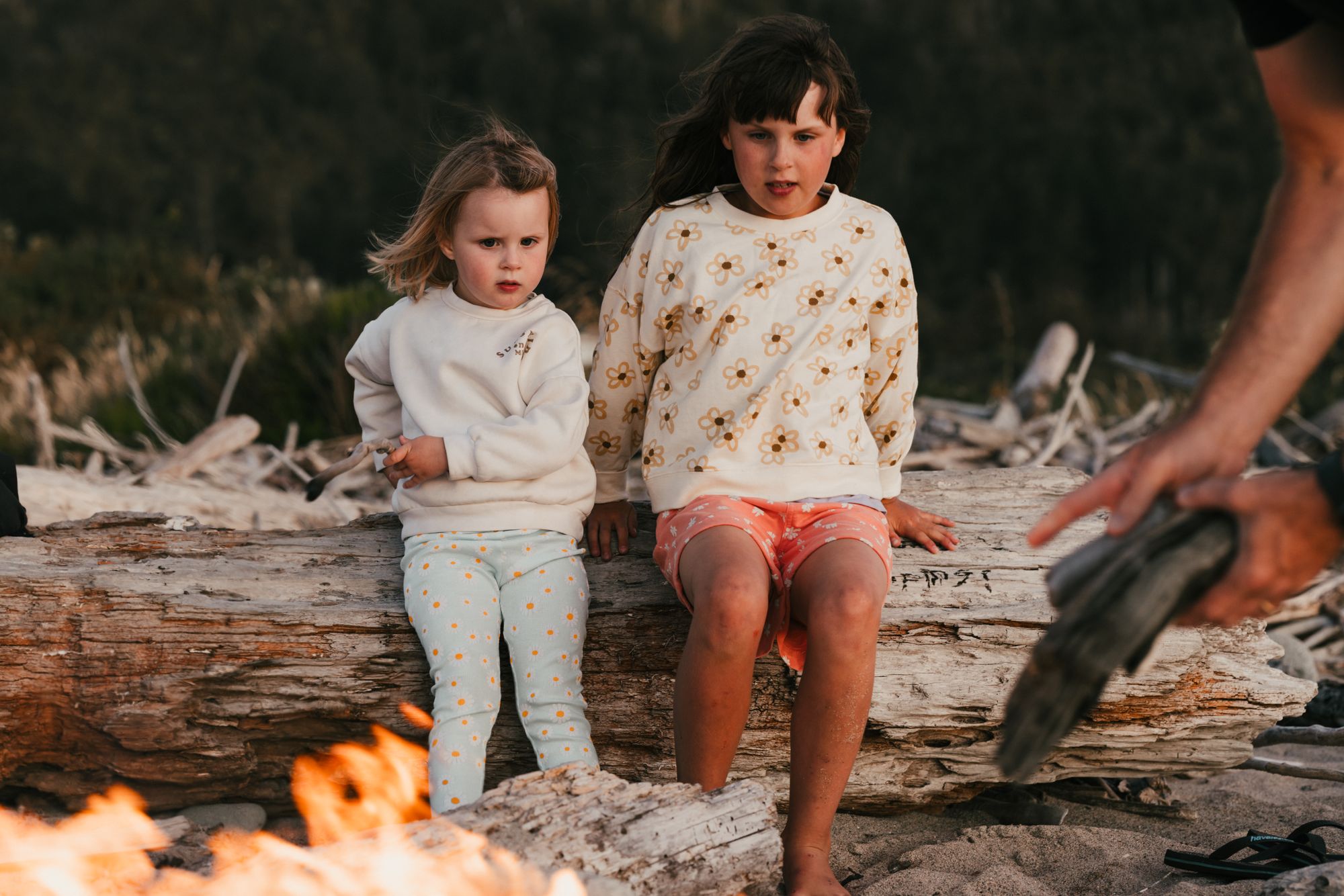
It will be everything you hope, and more
I’ve called out a lot of hard stuff in this post. A lot of the realities that aren’t talked about as much. But I also need to say - if you choose to go roadschooling, whether it’s for a month or a year or forever, you will absolutely LOVE IT. What’s that saying about not knowing pleasure if you don’t know pain? Because that probably captures the essence of this lifestyle better than anything. You will learn, and grow, and experience life in ways you never imagined.
We’ve discovered camping spots that were more beautiful than we thought possible. We’ve roasted marshmallows over a campfire while the sun went down over the wild West Coast ocean. We’ve woken to warm sun hitting our face, and brewed our morning coffee on a beach that stretched as far as our eyes could see. Not another human in sight. We’ve surfed coastlines we’ve only ever read about. We’ve camped out on a farmyard, surrounded by animals. We've jumped into crystal-blue glacial lakes. We’ve taken in the history of small towns we’ve never noticed before. We’ve met other travelling families, and the kids have made new friends almost everywhere we’ve gone. As a family, we’ve connected more deeply than we ever thought we could.
And together, we’ve banked an experience we’ll all talk about for the rest of our lives.
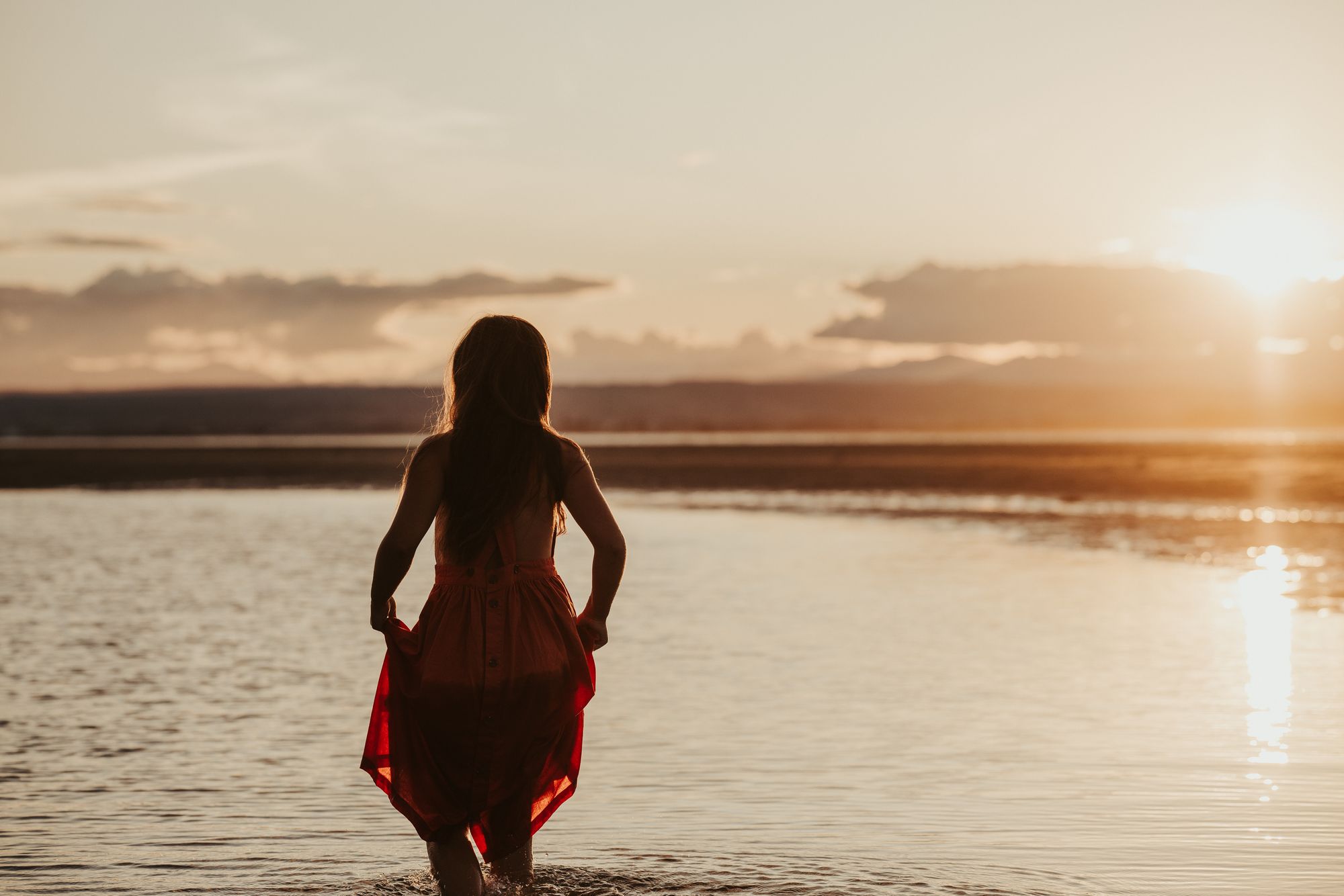
P.S. if you have any burning questions about this lifestyle that you'd love to ask, drop a comment below and I'll give you our honest, balanced perspective ✌️


